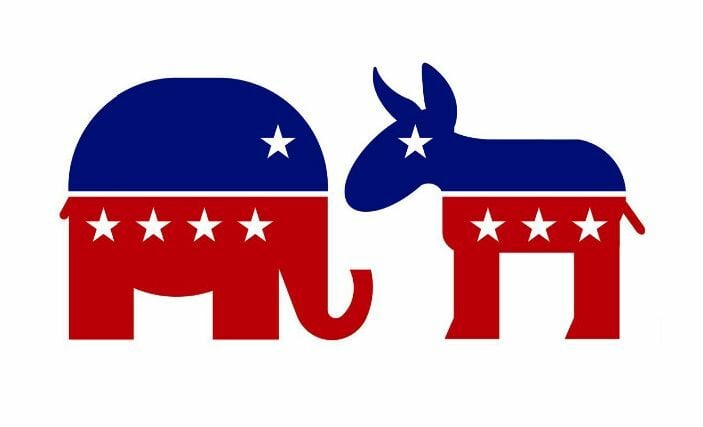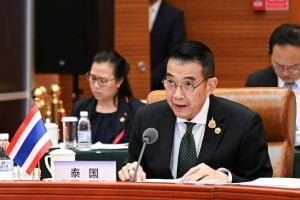US Election 2024 tracker: Live news and election updates

For the latest news, updates, and insights on the highly anticipated 2024 United States Presidential Election, look no further. As the race for the White House heats up, we bring you the most comprehensive and up-to-date information on the candidates, their policies, and the key issues shaping the election landscape. Stay informed and engaged with the world of American politics as we gear up for another pivotal moment in the nation’s history.
The 2024 US Presidential Election promises to be a significant event, with potential candidates from both major parties vying for the opportunity to lead the country. We cover a wide range of topics, including candidate profiles, campaign strategies, policy proposals, debates, and polling data. We also delve into the critical issues facing the nation, such as the economy, healthcare, national security, and social justice, providing you with a complete understanding of the factors influencing the election.
Whether you are a political enthusiast or a casual observer, our live feed offers a balanced and comprehensive view of the 2024 US Presidential Election. Stay tuned for the latest developments, breaking news, and in-depth analysis of the candidates and the issues that matter most to the American people. With our user-friendly interface and easy navigation, you can effortlessly stay updated on all aspects of the election.
So, bookmark this page, and let us be your go-to source for all the latest news and updates on the 2024 United States Presidential Election. Stay informed, stay engaged, and stay connected with the world of American politics.
North Carolina Republicans redraw congressional map to secure GOP advantage
Republicans in North Carolina have successfully implemented a new redistricting plan for the state's congressional map, a move expected to significantly aid their chances of maintaining control of the House of Representatives next year. The new layout aims to offset potential GOP losses in the South, where courts have recently invalidated congressional lines for unfairly reducing the influence of Black voters.
North Carolina's newly approved map is particularly effective at securing a GOP advantage in a state known for its closely contested statewide races. The strategy involves concentrating as many Democratic voters as possible into three districts, while scattering Republicans across the remaining areas to ensure they remain largely out of Democrats' reach.
The repercussions of the new map will likely shift the state's evenly balanced delegation of seven Democrats and seven Republicans, to a probable ten Republicans and three Democrats, with one competetive battleground seat currently held by Democratic Representative Don Davis.
The redistricting process, helmed by the GOP-controlled state legislature, has effectively nullified three Democratic districts, severely diminishing the likelihood of Representatives Kathy Manning, Wiley Nickel, and Jeff Jackson returning. It also turns the battleground district held by Davis into an even more uncertain race, offering Republicans a shot at securing 11 of the state's 14 districts.
The introduction of new deep-red districts and GOP Representative Dan Bishop's decision to run for state attorney general could result in as many as five new members joining the delegation by 2025.
District lines are yet to shift, but ambitious Republicans have already begun their campaigns. Former GOP Representative Mark Walker has terminated his gubernatorial bid and announced plans to run in the new 6th district. Other candidates to watch include Grant Campbell, an Army veteran and OB/GYN, and former state Senator Dan Barrett.
State House Speaker Tim Moore has shown interest in the new seat that will now encompass his home in Cleveland County, a region currently represented by Jackson.
The eastern district held by Davis will likely be the only genuinely competitive seat. Army veteran Laurie Buckhout launched a campaign there last week and committed $1 million to her bid.
State Republicans have openly admitted that the new map has been designed to favour their party. Republican state Representative Destin Hall, who chairs the state House Rules Committee, confirmed this during a discussion on Wednesday.
North Carolina Republicans have a history of drawing maps for political gain. Following the decennial census, the GOP-controlled state legislature created a heavily biased congressional map in 2021, which was subsequently overruled by the liberal state Supreme Court as an unlawful partisan gerrymander.
However, Republicans managed to flip control of the state Supreme Court in the midterms. The newly conservative majority made the rare decision to revisit the previous ruling, ultimately deciding that it would no longer intervene in partisan gerrymandering. This essentially granted the Republican legislature carte blanche to draw lines to their benefit.
While it's possible that civic groups or Democrats could challenge the new maps, the grounds for such a challenge remain unclear, and any litigation is highly unlikely to be resolved before 2024.
President Joe Biden's campaign has indicated plans to compete in North Carolina in the 2024 elections, despite the state's history of narrowly favouring Republicans in recent presidential and Senate races.
The state is also expected to host one of the most competitive gubernatorial races in 2024, with Democratic state Attorney General Josh Stein and Republican Lt. Gov. Mark Robinson emerging as their parties’ primary frontrunners to succeed the term-limited Governor Roy Cooper.
Several other states may also see new congressional lines ahead of next year’s elections. This includes Alabama, which has already implemented a new map for next year that will likely add a Black and Democratic member to the state’s delegation.
Georgia and Louisiana also have ongoing racial gerrymandering cases that could add a pair of Democratic-leaning seats to Congress, while New York Democrats are pushing for the opportunity to redraw their state’s lines.
By strategically redrawing and gerrymandering these lines for 2024, Democrats could stand to gain a handful of seats or at least make some currently held by the GOP more competitive.
Madison Fernandez, Natalie Allison and Nicholas Wu contributed to this report.
Virginia Governor Glenn Youngkin urges Republicans to embrace early voting in strategic shift
In a strategic turnabout, Governor Glenn Youngkin of Virginia is encouraging Republican voters to cast their votes early. The move marks a significant shift from recent Republican messaging and, if successful, could have far-reaching implications for the party both locally and nationally.
Over the past few years, former President Donald Trump campaigned against early and mail voting, propagating unfounded claims of voter fraud and stolen elections. This narrative led to a partisan shift in voting methods, with Republicans now less likely to vote early and more often choosing to vote on Election Day.
"We started behind because the Democrats had started embracing early voting a long time ago," Youngkin, 54 years old, acknowledged. He added that he had encouraged everyone to vote early, secure a mail-in ballot, and ensure their vote is cast and secured.
Youngkin's political campaign has invested millions in a "Secure Your Vote" initiative, aimed at addressing and reframing conservative voters' concerns about election integrity. The campaign encourages voters to join the state's permanent absentee list or make a plan to vote early ahead of this year's crucial legislative elections.
All 140 seats in the Virginia state House and Senate are up for grabs this year. Both parties believe the races for these seats are incredibly close. A recent poll conducted by The Washington Post/Schar School found that 47% of likely voters would choose a Democratic legislative candidate, while 45% would choose a Republican.
Youngkin's appeal to Republicans to embrace early voting could have significant repercussions leading up to 2024. Conservative campaign strategists believe that the party's broad abandonment of early voting has been a significant tactical error, contributing to a string of losses on both federal and state levels in recent years.
There are indications that Youngkin's push for early voting may be gaining traction. A greater proportion of in-person early voting is coming from Republican regions of the state compared to two years ago, according to an analysis of early voting data from Virginia's elections department.
However, these shifts are modest and uneven across the state, and it is still uncertain whether they represent a wider adoption of early voting or an increase in Republican turnout.
Democrats have taken note of their rivals' significant investment in early voting. Tom Bonier, a senior adviser for the data firm TargetSmart, noted that a larger percentage of Republicans are voting before Election Day than was seen last year or in 2021.
Youngkin's push has also included substantial outreach to conservative media. After appearances on shows like Fox News, visits to Youngkin's early voting portal double or more, and actual applications for mail ballots also significantly increase.
However, the impact of this success remains to be seen. Some argue that the majority of Republicans voting early are reliable GOP voters and that the party isn't turning out new, infrequent voters.
In California, for example, Republicans are encouraging voters to embrace early voting in several key House races. However, during a speech last month at the state party convention, Trump continued to spread conspiracy theories about the voting method.
Republicans hope to decrease Democrats' early-voting advantage as they seek any edge to win the election on November 7.
"They're structurally starting off with an advantage," said David Rexrode, who leads Youngkin's PAC Spirit of Virginia, referring to Democrats. He noted that the Democrats have long focused on promoting early voting, whereas Republicans are now having to encourage it.
Early voting is a relatively new phenomenon in Virginia. In 2020, the then-Democratic legislature and then-Governor Ralph Northam, a Democrat, brought about a significant expansion: 45 days of in-person early voting, no-excuse mail voting, and the creation of a permanent mail voting list. Democrats embraced it enthusiastically, while Republicans generally followed the national party.
Democrats believe that years of Trump-fueled election denialism will continue to hinder Virginia Republicans' push this year. "They have a long road ahead of them as they try to find their way in a system they've spent years casting doubt on," said Heather Williams, the interim president of the Democratic Legislative Campaign Committee.
Democratic senators weigh divergence from Biden's stance on border security and Iran
Democratic senators in battleground seats are considering a divergence from President Joe Biden's stance on border security and Iran. This comes as these political issues rise to the top of the Senate's agenda. Three Democratic senators from Republican-leaning states, all facing re-election next year, expressed criticism for Biden's approach to the border issue and are considering supporting Republican-led legislation to freeze $6 billion in Iranian assets. This follows Centrist Democrats calling for Biden to halt the aforementioned funds to Iran.
Given the narrow majority in the Senate, the Democrats can only afford to lose one seat in next year's election. This leaves Senators Jon Tester of Montana, Joe Manchin of West Virginia, and Sherrod Brown of Ohio, free to plot their own political course. Manchin has already endorsed two bills that would freeze the Iranian funds set to be released following a hostage exchange with Iran. Brown and Tester are contemplating joining him. Brown voiced his belief that both Biden and former President Donald Trump have failed to adequately secure the border, a sentiment echoed by Manchin and Tester.
Manchin, who hasn't yet announced plans to run for re-election, issued a stark warning to his colleagues, stating, "If Democrats don't get serious about border security, they're screwed. They're screwing themselves."
Biden's consistently low polling numbers allow these senators, and other Democratic incumbents from swing states, considerable room to distance themselves from the administration. Independent Senator Kyrsten Sinema of Arizona is considering a similar strategy as she contemplates another run.
Several Democrats who were up for re-election in the last cycle, including Senators Maggie Hassan of New Hampshire and Mark Kelly of Arizona, strategically distanced themselves from Biden and the rest of the party. However, this balance is even more precarious for the three senators from Republican-leaning states given the challenging election prospects and the narrow Senate majority.
Democratic Senatorial Campaign Chair Gary Peters indicated that party leaders are allowing their members latitude, stating that senators "are going to do what they think is right."
Democrats from Republican-leaning states often diverge from presidents of their own party, although this cycle's Senate map is particularly challenging for Democrats.
As the Senate is set to take up the border security debate later this fall as part of a nationwide security package, these Democrats may have ample opportunities to back up their rhetoric. However, the more centrist members face a difficult choice between the president of their own party and conservative-leaning voters who will determine whether they return to office.
The tension between Biden's own run and the need to maintain a Democratic Senate majority extends beyond Iran and immigration. Tester, Manchin, Sinema, and Senator Angus King of Maine all voted to roll back a bank data collection rule this week. This was the latest in a series of instances where a handful of Democrats have sided with Republican efforts to nullify Biden's regulations.
In order for their actions to not be perceived as political, Democrats need to be cautious. Brown stated that this is part of the reason why he is not immediately supporting bills to freeze the Iranian assets, saying, "I'm not just gonna say, out of political reasons, to do this."
Most of the Democrats up for re-election supported the 2013 comprehensive immigration bill, which included billions for border security. However, the House's rejection of that bill has essentially halted bipartisan legislative efforts on immigration for over a decade. Now, those moderate Democrats have little hope of expanding legal immigration along with stricter border policies.
Beyond legislation, there's the broader question of whether to appear with the president or not during the campaign season, a question that will fall more to purple-state Democrats than those from red states. Biden is unlikely to campaign in Ohio, let alone West Virginia or Montana.
Perry Johnson withdraws from GOP presidential race after being disqualified from debates
Perry Johnson, a 75-year-old business magnate, has officially withdrawn his bid for the GOP presidential nomination, terminating a campaign that was primarily self-financed. Johnson's withdrawal makes him the third candidate to bow out of the race, following in the footsteps of Miami Mayor Francis Suarez and former Representative Will Hurd.
This development comes after the Republican National Committee (RNC) disqualified Johnson from participating in the first debate in August, along with the second one in September. Although Johnson seemed to meet the requirements for the first debate, the RNC deemed the qualifying polls as non-compliant. Given the heightened entry barriers, Johnson's chances of making it into the third debate were slim.
"The level of corruption among RNC leaders during this process was shocking," Johnson expressed in a statement on Friday. He criticized the debate process as being designed to keep outsiders from participating and alleged that corrupt leaders used their power to exclude him from the debate stage at 11pm on the Monday preceding the debate, even with his team coordinating logistic details with Fox News over the weekend.
"With no avenue to present my vision on the debate stage, I've reached the decision that suspending my campaign is the correct course of action at this point," Johnson added.
Despite suspending his campaign, Johnson plans to maintain a small political team on staff, ready to spring into action should the dynamics of the race shift.
To meet the donor criteria for debate qualifications, Johnson resorted to a variety of stunts. These included offering a $10 gas gift card in return for a $1 donation for the first debate, and organizing a "Big and Rich" concert for anyone who donated $1 to his campaign. Following the RNC's declaration that Johnson did not qualify for the debate, he launched the Defend Them PAC to support individuals "facing politically motivated charges stemming from the 2020 elections". Johnson pledged to match donations up to $1 million personally.
Johnson announced his presidential bid in March, promoting his plan to reduce federal spending by 2% annually if elected. His campaign was predominantly self-funded, with Johnson lending $8.4 million to his campaign according to documents filed with the Federal Election Commission.
Throughout his campaign, Johnson was a frequent face on Newsmax but made scarce appearances on national news platforms. He also had a regular reality show titled "Backstage Pass" that aired on Newsmax every Sunday evening, offering viewers a glimpse into the day-to-day realities of running for president.
Johnson, who has never held public office, made a run for Michigan governor in 2022 but was found by the state's election bureau to have submitted thousands of fraudulent nominating signatures.
Johnson amassed the majority of his wealth after founding Perry Johnson Registers in 1994. This firm carries out audits and certifies other companies as meeting international standards for quality management systems.
Biden administration quietly optimistic following unexpected defeat of Poland's right-wing government
The United States administration under President Joe Biden is quietly appreciative following the unexpected defeat of Poland's right-wing government in recent elections. While the White House has not publicly acknowledged this development, officials within the administration view it as a potential positive turn of events for Ukraine and democracy in Europe. This information comes from three officials within the Biden administration, who provided insights anonymously due to the sensitive nature of commenting on another nation's elections.
The election result came as a surprise to many, given that the ruling right-wing Law and Justice party had been accused of using state resources and the media to their advantage. The party had also recently announced plans to halt weapon exports to Ukraine amidst a trade dispute. The outcome of the election could potentially lead to an improvement in relations between Poland and the U.S., as well as between Poland and the European Union (EU). There has been growing concern from both the U.S. and EU over the authoritarian tendencies of Poland's ruling party, which has resulted in multiple clashes with Brussels and threatens billions in EU funding.
Daniel Fried, a former U.S. ambassador to Poland, commented on the situation, stating, "It looks like the center has held in Poland." Fried's sentiments were echoed by democratic lawmakers who see the election results as a move towards aligning Poland with Western democracies that uphold the rule of law, human rights, and press freedoms. Representative Bill Keating, 68 years old, from Massachusetts, noted that the election served to reinforce Poland as a vibrant democracy where elections hold significant importance.
Despite the significance of the election, the White House has refrained from making formal comments on the issue. However, State Department spokesperson, Matthew Miller, praised the record voter turnout in Poland's elections on a social media platform, describing it as a strong expression of the democratic will of Polish citizens.
With the election outcome, U.S. officials expressed satisfaction, stating, "we were pleased to see the democratic process work." They noted Poland's importance as a partner and expressed willingness to work closely with the newly formed government. Representative Marcy Kaptur, 75 years old, from Ohio, who heads both the congressional caucus on Ukraine and Poland, also expressed optimism that the likely to form liberal coalition government would resist authoritarian tendencies and continue integrating with Europe and NATO allies.
Although the Law and Justice party received the most votes, they fell short of a majority. This opens the door for a coalition of more centrist parties to assume power. However, the process of transition may take several months, and the confirmation of a future prime minister is still pending. U.S. officials have indicated that they will remain cautious against any potential election irregularities.
The election outcome in Poland is set amidst a backdrop of concerns about the erosion of democracy in several European nations, including Hungary under Prime Minister Viktor Orbán, Slovakia under an Orbán ally, and Italy under hardliner Giorgia Meloni. Nevertheless, the Biden administration remains hopeful that the recent developments in Poland will lead to a positive shift in the European political landscape.
Donald Trump sues British intelligence firm over discredited report, seeks to debunk allegations in court
In London, a legal representative for the former United States president, Donald Trump, stated in court on Monday that Trump plans to debunk the "shocking and scandalous allegations" about him in a largely discredited report by a former British intelligence officer. The report, which had been proven harmful to Trump's reputation, was created by Christopher Steele in 2016. This report contained rumors and unverified claims about Trump, which created a political controversy just before his inauguration.
Trump is now suing Orbis Business Intelligence, the company founded by Steele, accusing it of violating British data protection laws. The company is seeking to have the case dismissed, and a judge will rule on the matter at a later date after hearing arguments in London's High Court.
The lawsuit occurs as Trump is leading the race for the 2024 Republican presidential nomination while also dealing with legal challenges in America. His legal team is currently dealing with a civil fraud trial in New York, where Trump and his company executives are accused of deceiving banks, insurers, and others by inflating his assets and net worth to secure loans and make deals. Trump also faces four separate criminal cases for allegations including mishandling classified documents, trying to overturn the 2020 election results, and paying hush money to an adult film actress to hide an affair.
His lawyer acknowledged in court on Monday that Trump is a "controversial figure" who "expresses himself in strong language" and has faced criticism from U.S. judges. However, he argued that none of this is relevant to the current case. According to the lawyer, Hugh Tomlinson, Trump "suffered personal and reputational damage and distress" because his data protection rights were violated.
Steele, who formerly ran the Russia desk for the Secret Intelligence Service or MI6, was commissioned by Democrats to compile research that included salacious allegations that Russians could potentially blackmail Trump for sexual activity. Trump has referred to the dossier as fake news and a political witch hunt.
Tomlinson stated that the report "contained shocking and scandalous claims about the personal conduct of President Trump" and included accusations that he paid bribes to Russian officials to further his business interests. According to Trump's case, "this personal data is egregiously inaccurate." Tomlinson added that Trump plans to vindicate himself in court by providing evidence that the report's claims were false.
Trump stated in a written witness statement that despite Steele's assertions that the allegations have not been disproven, they were "wholly untrue." He denied engaging in "perverted sexual behavior including the hiring of prostitutes ... in the presidential suite of a hotel in Moscow," participating in "sex parties" in St. Petersburg, bribing Russian officials, or giving them "sufficient material to blackmail me." He also denied that he bribed, coerced, or silenced witnesses.
Orbis is seeking to have the lawsuit dismissed because it claims the report was never intended to be made public and was published by BuzzFeed without the permission of Steele or Orbis. It also claims that the lawsuit was filed too late.
Orbis' attorney, Antony White, said that Trump has a "deep and intense animus against" Steele and the firm and a "long history of repeatedly bringing frivolous, meritless and vexatious claims for the purpose of vexing and harassing perceived enemies and others against whom he bears a grudge."
In his witness statement, Trump said that he was not trying to harass or seek revenge or drive Orbis into financial ruin but wants to establish that the information in the dossier was false.
"In two previous High Court cases, a judge ruled Orbis and Steele were not legally liable for the consequences of the dossier’s publication.
Last year, a federal judge in Florida dismissed Trump's lawsuit against Steele, his 2016 Democratic rival Hillary Clinton, and former top FBI officials, rejecting his claims that they helped concoct the Russia investigation that overshadowed much of his administration.
Virginia Republican candidate Glenn Youngkin launches new abortion strategy in a bid to win over voters
RICHMOND, Va. — Glenn Youngkin, the Virginia Republican Party's gubernatorial candidate, is launching a new strategy on the contentious issue of abortion, which has been a thorn in the side of Republicans for the past 18 months. Traditionally, Republicans have tried to avoid discussing the topic, but Youngkin is now using it as a weapon against Democrats, portraying them as extremists who oppose any restrictions on abortion.
The new Republican campaign supports a ban on abortions after 15 weeks, with exceptions for instances of rape, incest, and when the mother's life is at risk. This new approach is part of a large $1.4 million advertising campaign targeting the state Legislature control.
David Rexrode, the executive director of Youngkin’s Spirit of Virginia PAC, stated that since Democrats are focusing their attacks on abortion, it's only right to respond in kind. The goal for Republicans is to nullify the Democrats' main line of attack, while also concentrating on issues such as crime and the economy.
The decision to surrender the abortion debate to Democrats was a mistake, according to Rexrode. In numerous elections since the Supreme Court overturned Roe v. Wade, Democrats have outperformed expectations while Republicans mostly deflected and changed the subject. However, in the highly competitive legislative races next month, Youngkin's political operation has adopted an almost diametrically opposite approach to abortion compared to most Republicans in last year's midterms.
Despite this new strategy, there is no guarantee of success. Democrats have been running hard on abortion rights since the Supreme Court's ruling, and the anger of voters over abortion has mostly been directed at Republicans. Democrats in Virginia dismiss the GOP effort, arguing that voters have repeatedly shown that Republicans cannot be trusted on abortion.
Nevertheless, Youngkin's operation is making a significant wager. If Virginia Republicans manage to capture both legislative chambers next month, it could become a model for the party and boost Youngkin's bid to establish himself as a future leader of the GOP.
This week, the group launched a statewide advertisement accusing Democrats of spreading disinformation about abortion. The ad asserts that Democrats don't support any sort of limit on the procedure.
The group plans to put the money into TV buys and digital ads to run it through Election Day on November 7. Despite this, Republicans' most potent attacks are over other issues, and while they are trying to disarm Democrats over abortion, Virginia Republicans continue to hammer messages about crime and the economy.
According to data from AdImpact, crime remains the top issue Republicans discuss in advertising, with the GOP running nearly three times as many television ads mentioning crime compared to abortion since the primaries.
Both parties are seeking any advantage to win both legislative chambers next month, and Democrats have once again made abortion their top issue. A University of Mary Washington survey last month found that 40% of people said they'd prefer a Democratic majority in the Legislature, and 37% a Republican one.
Democrats have quickly dismissed Youngkin's efforts as doomed to fail. They argue that the past year's elections demonstrate how abortion remains a winning issue for Democrats, and no amount of counter-messaging will change that.
Democrats rode a wave of abortion attacks to better than expected midterm results and a series of 2023 special elections in which they have outperformed President Joe Biden’s 2020 margins. Virginia Democrats highlight a different interpretation of the polling data. While the ad frames voters who said abortion should be “legal in most cases” as supporting limits, Democrats note that a majority of Virginians support the procedure being legal in most or all cases.
Democrats across the country continue to lean heavily on abortion in ad messaging this year. That's especially true in Virginia, where it is easily Democrats' most advertised topic, according to AdImpact data, more than double the second most popular issue, education.
Democrats argue Republicans are being dishonest and would look to push a shorter ban than 15 weeks if they take control. Amy Friedman, the executive director of the Virginia state House Democratic Caucus, stated, “We know they want an abortion ban. And we know that Virginians and Americans don’t."
Robert F. Kennedy Jr raises $9 million in final quarter as Democratic primary challenger before launching independent presidential campaign
Over the past three months, Robert F. Kennedy Jr has managed to raise almost $9 million and spent more than $7 million in his final quarter as a primary challenger for the Democratic Party. According to a recent report with the Federal Election Commission, Kennedy's campaign had $6.1 million in cash as of September 30. This sum rivals some lower-ranking GOP challengers, however, the high spending of the campaign indicates potential sustainability challenges. Kennedy plans to launch a nationwide independent presidential campaign through November 2024.
Kennedy's decision to run as an independent may have a positive impact on his fundraising. The super PAC that supports his bid claimed to have raised $11 million within six hours of his launch event on Monday. Despite this, his campaign has not released any figures and cannot accept donations as large as those that the super PAC can. Public filings following the launch of his independent campaign will not be available until after the year ends.
Kennedy, a well-known environmental lawyer and anti-vaccine activist, has significantly increased his campaign trail schedule during the summer and early fall. He's made stops in New Hampshire and South Carolina, along with general election swing states. His campaign has also opened field offices in New Hampshire, South Carolina, and a campaign headquarters in New Jersey.
The single largest expense over the last quarter was over $916,000, which was paid to the firm of Gavin de Becker for security services. Becker is a security specialist who also donated $4.5 million to a super PAC supporting Kennedy’s candidacy earlier this year.
In July, Kennedy's campaign requested secret service protection. However, Homeland Security Secretary Alejandro Mayorkas stated that providing security was "not warranted at this time." The majority of presidential candidates do not receive secret service protection during a primary.
This request for protection and the subsequent private security expenses is likely due to numerous comments Kennedy has made about the political assassinations in his own family. Earlier this year, Kennedy claimed during a cable news appearance that the CIA was involved in the assassination of his uncle, President John F. Kennedy.
The campaign has also reported spending over $260,000 on travel and purchased a campaign vehicle from a Florida-based RV dealer, Land and Sea Specialty, for almost $200,000.
Kennedy has continued to create a series of documentary-style videos, including one focused on a trip to the U.S.-Mexico border. He has also increased his digital media presence during the reporting period. The campaign said it spent $218,000 on media production expenses across several different vendors.
Furthermore, nearly $180,000 was paid to the consulting company of former congressman Dennis Kucinich, who served as Kennedy's campaign manager since spring. On Friday, Kennedy's campaign announced that Amaryllis Kennedy, his daughter-in-law and former undercover CIA agent, would be taking over as campaign manager.
Over two-thirds of Kennedy's third-quarter fundraising came from donors who gave at least $200. More than $3 million came from donors who have given at least $3,300 to his campaign, while $2.7 million came from small-dollar donors who gave less than $200 each.
Kennedy has recently relaunched his campaign for president as an independent, leaving the party his family helped define in the 20th century. This announcement was made on October 9, after this reporting period and would not have impacted his third quarter fundraising. However, it will be reflected in the next reporting period deadline at the end of January.
Supreme court leans towards affirming GOP-constructed district in South Carolina amid accusations of racial gerrymandering
The conservative majority of the Supreme Court on Wednesday seemed inclined to affirm a Republican-constructed congressional district in South Carolina, which was previously deemed racially gerrymandered by a lower court. The case, known as Alexander v. South Carolina Conference of the NAACP, is a litmus test for the legal boundaries of partisan gerrymandering, especially when it intersects with racial considerations.
The NAACP has accused Republican legislators of manipulating the state's 1st District, currently represented by GOP Rep. Nancy Mace, by deliberately moving African American voters in and out of the district to secure a Republican stronghold. However, Republicans argue that their redistricting was based solely on partisan lines, not racial demographics.
During the oral argument which lasted more than two hours, several conservative justices expressed skepticism that the evidence provided by the lower court sufficiently demonstrated that race was the primary factor in the redistricting.
This case marks the third instance in two years that the Supreme Court has been called upon to arbitrate over state congressional lines, thus placing the justices in the position of determining political boundaries ahead of a significant election.
The NAACP and other challengers contend that Mace's district was strategically drawn to exclude African American voters and move them into the state's 6th District, represented by long-serving Democratic Rep. Jim Clyburn. They argue that this redistricting, which occurred after the 2020 census, contravenes the 14th Amendment's Equal Protection Clause and the 15th Amendment's guarantee against racial discrimination in voting rights.
Republicans, however, maintain that they did not consider race when redrawing the district lines but focused solely on partisan data, with the clear goal of making the district more Republican-leaning.
Earlier this year, a panel of three federal judges, two of whom were appointed by former President Barack Obama and one by President Joe Biden, sided with the challengers. They stated that race was the primary factor motivating the redrawing of the 1st District and that the process effectively resulted in the "bleaching" of African American voters from the Charleston County portion of the district.
The case in the lower court did not present explicit evidence that racial data was used in the redistricting. Instead, it relied largely on expert analysis arguing that it would have been impossible to redraw the district without considering racial demographics. Justice Sonia Sotomayor and the court's other liberal justices argued that the circumstantial evidence used by the lower court was sufficient, citing past court precedents.
Remarkably, none of the parties involved in the argument on Wednesday disputed the purpose of the South Carolina congressional map, which was to give Republicans an advantage in the 1st District. Justice Elena Kagan, a member of the liberal minority, acknowledged that this was the first case of its kind since that decision. However, she argued that mapmakers would not have relied solely on 2020 election results in drawing their GOP-leaning map.
The Supreme Court's two most recent redistricting rulings may provide fairly little guidance for how justices will side in this case. While Roberts has traditionally been skeptical and even hostile to voting-rights cases, the chief justice surprised many civil rights advocates in June by siding with voting-rights groups and Democrats in a racial gerrymandering lawsuit from Alabama.
The battle for control of the House in 2024 could come down to how courts rule on a series of challenges to state-drawn maps. Republicans have a razor-thin House majority already. And it will likely get smaller with an all-but-guaranteed Democratic pickup in Alabama, where a federal court last week picked a map that will almost certainly add a Black member to the delegation.
Biden's age concerns linger as Democrats question his fitness for another term
As President Joe Biden prepares for his uncontested renomination, a lingering concern about his age and ability to serve another full term casts a shadow over his political prospects. Despite this, Biden has shown reluctance to address these issues, causing heightened worry among his supporters.
Biden, who will turn 82 next year, has demonstrated a keen interest in his campaign details but has shown less willingness to discuss his age. According to Democrats close to him, Biden has not conducted any significant polling about voter reassurance concerning his age, and has shown an aversion to hearing aids.
Despite his inability to halt the passage of time, Biden's supporters argue that he needs to do more than simply make light-hearted jokes about his age. They argue that his usual response, "watch me," when asked about his age, is problematic as it does not sufficiently address the concerns of the voters.
Democrats facing their own tough reelections are acutely aware of the threat posed by Biden's perceived limitations. Representative Hillary Scholten, who represents a historically Republican section of Western Michigan, suggests that Biden could benefit from an intraparty challenge, as it would provide him an opportunity to demonstrate his fitness.
However, with filing deadlines imminent and nearly every ambitious Democrat falling in line behind Biden, a full-scale primary seems unlikely. Representative Dean Phillips (D-Minn.) is considering a bid, and his potential candidacy is receiving admiration from Democratic lawmakers.
Phillips, who has consulted several Democratic strategists and sought inspiration from John F. Kennedy's "Profiles in Courage," may pose the only challenge to Biden in New Hampshire. The state has seen a change in the party's calendar, and Biden is not competing there.
Many House Democrats are more concerned about Biden than they are about their colleague from Minnesota. During a meeting at the Democratic Congressional Campaign Committee, lawmakers watched livestreams of focus groups with voters in Nevada and Michigan. The voters' concerns about Biden's age were a recurring theme.
Democratic lawmakers have expressed the urgent need for Biden to attempt to alleviate voters' concerns about his capacity to serve. Senator Jon Tester, a Democrat from Montana, suggests that Biden needs to address these issues publicly. Senator Jeanne Shaheen (D-N.H.) echoed this sentiment, stating that it is vital for Biden to confront these concerns.
Biden's team has seemingly concluded that there is more to lose than to gain by increasing his public profile. A strong public performance might do less to enhance his image than another mishap, like the one he experienced earlier this year, would intensify doubts about his capacity.
Biden has increased his domestic travel since announcing his reelection bid. He has also scheduled numerous events in metropolitan Washington and Philadelphia, which he can easily access from his Delaware home.
Concerns about Biden's ability to effectively argue, particularly about the economy, worry Democrats more than his travel. Even when presented with positive news, such as last week's better-than-expected jobs report, Biden has struggled to leverage it to make a strong case for himself or against Republicans.
Despite this, Biden's defenders argue that his critics have mostly underestimated his political and legislative prospects. However, even the staunchest Biden defenders are questioning if ignoring the warning signs about his age might prove detrimental in the long run.
Democrats are currently focused on how Biden can alleviate doubts about his fitness. Some suggest a light-hearted approach, while others believe he owes the electorate more than humor. One suggestion includes a "60 Minutes" interview where Biden can directly address questions about his age.
As Biden prepares for the possibility of running against Donald Trump again next year, he faces the challenge of reassuring the country that he is capable of serving another four-year term. This may require him to directly confront the concerns about his age and fitness to serve.
Kari Lake's Senate bid in Arizona: A shift in strategy and a conundrum for Republicans
In Scottsdale, Arizona, Kari Lake, once a television anchor, announced her Senate campaign with a 50-minute speech that bore little resemblance to her previous gubernatorial bid two years prior. Speaking in an airplane hangar under intense heat, Lake primarily lamented the escalating inflation, fuel prices, and border crisis. Her speech was a departure from her previous focus on election fraud claims.
Lake, a known supporter of former President Donald Trump, received an endorsement from Trump himself during the event. The crowd at the event had a mix of Trump supporters and formally dressed attendees.
Lake's rebranding and her entire candidacy present a conundrum for Republicans. After her defeat in 2022, many hoped she would retreat from politics. However, it appeared that the party had no way of preventing her Senate bid. Private polling showed that Lake was unbeatable in a primary and criticisms of her did not affect her popularity, according to an anonymous source familiar with the data.
Lake's aggressive campaign strategies have deterred potential challengers within her own party. However, she has also sought to engage with her Republican critics. She recently spent time on Capitol Hill, meeting with senators from various ideological backgrounds.
Lake's campaign this time around appears to be more professional. She has shown a willingness to hire professional consultants and is preparing to bring on more seasoned operatives. Her campaign launch event reflected this maturity, with discussions on water issues and trade schools, and praise for Ronald Reagan.
However, the question remains whether Lake can move beyond her base in the event of a three-way race. Democratic Rep. Ruben Gallego is likely to be the Democratic nominee, while incumbent Sen. Kyrsten Sinema, who switched to an independent, has not revealed her plans for reelection yet.
While some GOP operatives express hope for Lake's recalibration, others privately harbor doubts. They worry that she could be easily tempted into discussing issues that could alienate voters beyond her base. Democrats plan to attack her on her past statements and current policy proposals.
Veteran Arizona operative Chuck Coughlin expressed skepticism about Lake's chances of success, stating, "I think her ceiling’s in the mid to low 30s. I have a hard time seeing her get 38% of the general election in a three-way race." He suggested that her chances could improve if she appeared less contemptuous and more aspirational.
Others, like Sen. Mitt Romney, have even less hope for Lake's success, stating, "I don’t think she has any prospect of actually being elected. The people of Arizona are smarter than that."
Tim Scott criticizes fellow Republicans' foreign policy positions amid Hamas-Israel conflict
On Tuesday, Tim Scott, the senator of South Carolina and potential presidential candidate, strongly criticized Ron DeSantis and Vivek Ramaswamy for their foreign policy positions, which, according to Scott, portray America as weak overseas. This comes in the wake of the recent violence from Hamas' attack on Israel.
Scott pointed out that Ramaswamy has proposed that the measure of success lies in reducing the U.S.'s support for Israel. He also mentioned that Ramaswamy suggested that Taiwan should be given up to the Chinese Communist Party as long as some factories are relocated there. Additionally, he criticized Governor DeSantis for downplaying Russia's invasion of Ukraine as merely a 'territorial dispute.'
Scott's comments were made in the context of the ongoing tension within the Republican presidential primary between the party's more isolationist and engagement-oriented factions. He was echoing the sentiment expressed by former Vice President Mike Pence, who over the weekend condemned the "voices of appeasement" within the GOP.
Despite the foreign policy differences within the party, Scott affirmed his belief in American courage and values. He advocated for a comprehensive government response in support of Israel. One of the key issues in Scott's current role in the Senate is the continued funding of military assistance for Ukraine, a topic that many conservative Republicans in the House have strongly opposed.
In addition to his criticisms of DeSantis and Ramaswamy, Scott also took aim at progressive Democrats and President Joe Biden over the violence in the Middle East. He accused the president of having "blood on his hands" and claimed that his weakness "invited the attack."
This direct criticism of fellow Republicans marks a shift in Scott's strategy. Previously, he had generally avoided direct attacks on his opponents. It also represents a change for a senator whose tenure has primarily focused on committees with domestic issues.
Despite his efforts, Scott has struggled to gain momentum in a race dominated by Donald Trump. In the wake of the recent Hamas attack on Israel, Scott has repeatedly criticized Biden for perceived weakness and called for unwavering American support for Israel. He has also called for the refreezing of a six billion dollar fund package that was approved by the Biden administration in a deal involving the release of Iranian prisoners.
Notably absent from Scott's criticisms were Donald Trump, who has repeatedly expressed support for withholding aid to Ukraine under certain circumstances, and Nikki Haley, the former U.N. ambassador who has been rising in recent polls. According to a recent analysis, unlike Trump, DeSantis, Ramaswamy, and Haley, Scott has not yet qualified for the third primary debate, scheduled for the beginning of November. Trump has already announced that he will not attend the event.
Democrats challenge new Republican-backed election legislation in North Carolina
Two prominent Democrat entities have initiated proceedings against a recently enacted Republican-backed election legislation in North Carolina. The lawsuit, instituted by the Democratic National Committee and the North Carolina Democratic Party, seeks to address numerous elements of Senate Bill 747. The plaintiffs are notably focusing on the stipulations in the bill concerning same-day registration, which necessitate further forms of photo identification and proof of residence. As per these stipulations, if the voter's provided information fails to be verified timely, the ballot could be rescinded under the new enactments.
This legal action was undertaken immediately after the Republican majority legislature overruled the veto of the bill by the Democratic Governor, Roy Cooper, according to officials from the Biden campaign who have been collaborating with the Democratic National Committee and North Carolina Democrats to formulate the lawsuit in anticipation of the bill's progression.
"Preserving the fundamental right of Americans to cast their votes against attempts to erode their voting freedom is a critical task for President Biden and Vice President Harris. Senate Bill 747 is not about safeguarding election security. It's about creating obstacles for North Carolinians to vote and imposing new burdens for voters to safely cast their ballot and, ultimately, have their vote counted," stated Julie Chavez Rodriguez, the manager of the Biden campaign.
Senate Bill 747 alters the state's election laws dramatically, introducing new constraints and deadlines, whilst also giving more power to partisan poll observers. This has become the latest attempt by Republicans to impose new voting restrictions in state legislatures nationwide. While Republicans in North Carolina deem this law crucial for enhancing election security, Governor Cooper criticized it on Tuesday as a method for "manipulating elections to consolidate their power". The North Carolina Democratic Party Chair, Anderson Clayton, denounced it as a "full-scale assault on democracy itself."
This legal challenge on Tuesday offers a glimpse into the strategy the Democratic National Committee and Biden campaign will employ in the lead up to 2024, taking cues from efforts to mitigate voting restrictions in 2020, according to campaign officials. During the last election cycle, Democratic National Committee officials had more success with targeted challenges.
The objective of Tuesday's lawsuit, according to campaign officials, is to successfully repeal some provisions before voters cast their votes in 2024. Regarding the preliminary injunction on this case, it is expected that a ruling will be issued by a judge in the coming months.
"In response to the GOP's ongoing attacks on democracy, we're utilizing every resource at our disposal to halt the Republicans' voter suppression tactics," stated Jaime Harrison, the chair of the Democratic National Committee.
Democratic party's dilemma: Indicted senator Bob Menendez's potential reelection bid stirs unease
The Democratic Party faces a quandary as indicted Sen. Bob Menendez from New Jersey contemplates running for reelection, causing unease among members of the party who would prefer more stability in their Senate ranks. Despite over half of the Senate Democratic caucus previously calling for Menendez to resign following his indictment on bribery charges, there seems to be no strong strategy in place to encourage him to step down.
There is potential for the party to lend support to Rep. Andy Kim or other primary opponents of Menendez, however, thus far, only Sen. John Fetterman from Pennsylvania has advocated for this. The majority of Democrats appear to be waiting for the legal proceedings to conclude and hoping Menendez decides not to run again.
Sen. Sherrod Brown from Ohio, who has previously called for Menendez to resign, stated that he hopes Menendez chooses not to run, but if he does, it will be his decision and he believes Menendez will not win.
Among the many Senate Democrats interviewed, few committed to supporting a primary challenger or openly criticized Menendez for considering a 2024 bid. The lack of commentary suggests that despite the repercussions of Menendez's indictment, Democrats are hesitant to clash with their long-serving colleague.
While Menendez has not given any clear indication of his future plans, he has stated that he will notify the people of New Jersey when he is ready to make a decision. The Democratic Senatorial Campaign Committee (DSCC), which traditionally protects incumbent senators, has not formally withdrawn support for Menendez. Senate Majority Leader Chuck Schumer has not called for Menendez to resign but has expressed disappointment in him for failing to uphold the "standard" of the chamber.
Many Democrats hope that voters, the legal system, or the Ethics Committee will hold Menendez accountable. Menendez, a long-standing figure in New Jersey politics, has maintained strong connections, with his son serving in the House and nearly $8 million in his campaign account.
Sen. Peter Welch from Vermont, one of the members of the caucus who has called for Menendez to step down, stated that it is Menendez's decision whether he chooses to resign or not.
Nominating an indicted senator could open the Democratic Party up to criticism, especially as it seeks to differentiate itself from former President Donald Trump and his many federal charges.
DSCC Chair Sen. Gary Peters from Michigan, who has called for Menendez to resign, has not revealed how he would respond to a Menendez run next year. Peters stated that he has not spoken to Menendez about 2024 yet and that "we've got time to see what happens there."
The Republican Party is anticipating the possibility of an indicted Democrat leading a statewide ballot. Rep. Jeff Van Drew, a former Democrat who switched parties in 2019, is considering a Senate bid and has launched a fundraising ad on Facebook presenting himself as a possible alternative to Menendez.
Recent Democratic polls indicate that Menendez's unfavorable ratings are high, suggesting that he would begin as a significant underdog. However, there is still much that could change between now and the height of the New Jersey race.
Menendez's trial is scheduled for May, and the Senate Ethics Committee could recommend sanctions against him before then. He could also negotiate a plea deal with the Justice Department, which might require him to renounce reelection.
While Senate Democrats are hoping for any of these factors to end Menendez's political career, they are also faced with the delicate task of navigating the remainder of his current term with him as a colleague.
Robert F. Kennedy Jr.'s potential independent presidential run: Impact on major party nominees and the rise of third-party voting
Robert F. Kennedy Jr., the potential independent presidential candidate, is predicted to be a significant force in the upcoming election due to his popular name and the general dissatisfaction with the major party nominees. His popularity could lead to the largest vote share for an independent candidate since Ross Perot's near 19% in the 1992 election.
Although it's early in Kennedy's candidacy, early polls show him earning 14% support when placed as a third option alongside President Joe Biden and former President Donald Trump. This has both parties on edge due to the potential impact Kennedy could have on their respective voter bases. Biden's allies have labeled Kennedy's independent run as dangerous, while the Republican National Committee, mindful of Kennedy's appeal to their anti-vaccine constituents, is emphasizing his liberal policy positions.
The current support for Kennedy is split fairly evenly between Biden and Trump supporters. However, third-party campaigns can be unpredictable, and Kennedy's anti-vaccination stance may draw more support from Republicans than Democrats. Despite the lack of enthusiasm for Biden's campaign within the Democratic party, most do not view Kennedy as their preferred alternative. It seems more likely that Kennedy's independent candidacy would cause more harm to Trump's campaign.
It's uncertain if the current polling represents Kennedy's lowest or highest potential support. However, he appears to have the financial resources to run a credible campaign. With backing from a super PAC, American Values 2024, primarily funded by conservative donor Timothy Mellon and billionaire Gavin de Becker, Kennedy's campaign had $9.8 million in the bank at the end of June.
Third-party voting rates tend to increase when the two major-party candidates are unpopular. Given that Trump and Biden are collectively less popular than Trump and Clinton were in 2016, third-party voting could rise next year. Kennedy's strongest appeal to Democratic-leaning voters lies in their lack of enthusiasm for Biden's reelection campaign.
However, despite Biden's weaknesses, Kennedy's candidacy could ultimately aid in securing Biden a second term. Kennedy is consistently more popular with Republicans than Democrats, a trend that became apparent during Kennedy's unsuccessful primary against Biden. This was largely due to Kennedy's anti-vaccine stance and his frequent appearances on Fox News - factors that do not resonate well with Democratic voters.
While the Echelon Insights poll suggested Kennedy could take more from Biden, a Reuters/Ipsos survey released last week showed Kennedy drawing 9% of self-identified Democrats, 13% of Republicans, and 24% of independents. Although not a significant difference, Kennedy might have more room to grow among Republicans as 59% of Republicans have a favorable opinion of Kennedy compared to 40% of Democrats.
Kennedy's super PAC has its own polling data showing Kennedy drawing slightly more votes from Trump than Biden. However, the differences were within the margin of error. Kennedy also appears to see an opportunity with Republican voters. He is scheduled to appear at the Conservative Political Action Conference in Las Vegas later this month, which will also be attended by right-wing figures like presidential candidate Vivek Ramaswamy and Arizona Senate hopeful Kari Lake.
Robert F. Kennedy Jr. shifts political campaign, runs as independent candidate
On Monday, Robert F. Kennedy Jr., 67 years old, announced a shift in his political campaign, stating that he will no longer compete against President Joe Biden for the Democratic nomination. Instead, he has decided to run as an independent candidate. Kennedy, a noted environmental attorney who later transitioned into an anti-vaccine advocate, brings significant implications to the electoral field with his announcement.
Kennedy's decision is expected to draw a diverse array of support from members of both major political parties. His extensive background as an environmental lawyer has won him favor among those advocating for stronger environmental policies. However, in recent years, Kennedy has gained notoriety as an outspoken critic of vaccinations, which has attracted a different demographic of supporters.
With this new political alignment, Kennedy may potentially disrupt the traditional party lines vote, as his unique stand on key issues resonates with constituents from both the Democratic and Republican parties. His campaign as an independent candidate enhances the dynamics of the election, introducing a more diverse range of political perspectives.
While Kennedy's decision to withdraw from the Democratic nomination race might seem like a setback, his move to run as an independent candidate could strategically position him in a more advantageous spot in the electoral landscape. His diverse support base, drawn from both major parties, could potentially shift the balance of the election and influence its outcome.
Kennedy's announcement comes at a critical juncture in the campaign season, adding a new layer of complexity to the electoral process. As he embarks on this independent journey, all eyes are on how his decision will influence the political landscape in the weeks and months to come.
Despite the potential challenges that running as an independent candidate might entail, Kennedy maintains an optimistic outlook on his campaign. His unique perspective on key issues, coupled with his diverse support base, might well make him a notable contender in this race.
In summary, Robert F. Kennedy Jr.'s decision to run as an independent candidate has the potential to significantly shift the dynamics of the upcoming election. By stepping away from the Democratic nomination and pursuing an independent campaign, Kennedy is introducing a fresh perspective to the electoral process. It remains to be seen how this will impact the overall political landscape, but one thing is certain - the road to the election just got a little more interesting.
Democratic benefactors funnel millions to counter Virginia Governor's influence in state legislature races
A considerable amount of funds is being channeled by Democratic benefactors to prevent Virginia's Governor, Glenn Youngkin, from gaining control of the state's legislature. The States Project has committed to invest over $4.5 million in the upcoming Virginia legislative races next month, with an aim to replicate its success of turning several statehouses blue in 2022.
Currently, Democrats maintain a slight edge in the Virginia Senate, leading 22-18, while Republicans have a narrow control over the House. If Democrats are able to secure a majority in both chambers, it could pave the way for a Democratic trifecta in 2025, with high-profile Democrats already eyeing the governor's seat. However, there is a looming fear among Democrats that Youngkin could potentially gain a trifecta himself in November.
Adam Pritzker, a Democratic benefactor and co-founder of The States Project, along with Daniel Squadron, a former Democratic state senator for New York, emphasised the need for Democrats to consider state legislatures as crucial races that demand substantial investment. The States Project's funding, which is backed by The PAC for America’s Future, is especially significant given that many vital policies, including abortion rights, are determined at the state level.
Virginia House Democratic Leader, Don Scott, acknowledged the critical support provided by The States Project, stating that it has been integral in elevating important issues such as abortion and voting rights, and ensuring robust campaign groundwork. The organization specifically targets state legislative districts with the narrowest margins, and aids in funding data analysis, ad testing, local press leverage, and door-knocking to facilitate effective voter engagement.
Following Virginia, The States Project has plans to funnel millions more into other state legislative races across the nation in 2024, continuing its trend of hefty investments, as demonstrated by the $60 million it put into statehouse races in 2022. The organization's leaders attribute these funds to the establishment of new Democratic majorities in the House chambers of Michigan and Pennsylvania, and the Minnesota state Senate. They have also invested in Arizona, Maine, Nebraska, Nevada, and New Hampshire in the past year.
While the group is focused on offense, it also recognizes the importance of defense. It plans to safeguard existing majorities in the Michigan House and Senate, the Minnesota House and Senate, and the Pennsylvania House in 2024. The group is also targeting victories in the Arizona House and Senate, the New Hampshire legislature, and the Pennsylvania Senate. They aim to disrupt the Republican supermajority in the Kansas House and broaden their significant majorities in Nevada.
Pritzker and Squadron pointed out that significant policies are determined at the state level. They believe that Democratic attention is excessively centered on Washington D.C., overlooking the stakes involved in state legislatures.
The States Project relies on "giving circles," small groups that adopt a state and raise money through social events, as their primary source of funding. These giving circles, established in 2017, organize various fundraising activities, often featuring candidates as the main attraction.
Squadron, who was the youngest state senator when he first ran for the state legislature at 28 years old in 2008, emphasized the importance of grassroots engagement and personal interaction with voters. Squadron and Pritzker, a prominent Democratic donor, joined forces in 2017 to fuel these races which are often neglected by donors.
Pritzker underscored the lack of resources and media attention dedicated to state legislative candidates in comparison to presidential elections. The duo's efforts are aimed at addressing this disparity and ensuring these critical races receive the attention and funding they deserve.
Virginia's state legislative elections: A significant indicator for the 2024 political landscape
RICHMOND, Va. - The Virginia state legislative election scheduled for next month is being seen as a significant indicator of the political climate leading up to the 2024 elections. Despite widespread dissatisfaction with President Joe Biden, Democrats continue to win special elections, often surpassing the margins of Biden's 2020 campaign. Meanwhile, economic indicators suggest steady growth and low unemployment, yet a significant number of voters believe the economy is not on the right track.
Approximately 140 seats in the General Assembly are up for election on November 7, and both major parties are investing heavily in their campaigns. The regions that will determine the majority in the state House and Senate are believed to be representative of areas that will be crucial in determining the control of the presidency and Congress in the coming years.
The Republican campaign is being run through a Political Action Committee (PAC) controlled by allies of the state's ambitious but term-limited Republican governor, Glenn Youngkin. The PAC, Spirit of Virginia, has identified 17 state House and Senate districts as crucial. These districts have demographic and political characteristics that have been key in elections since Donald Trump's 2016 victory.
Both parties are focusing on key issues that are expected to be central to the 2024 election. Democrats are putting a great emphasis on abortion, while Republicans are discussing crime and education. Also, they are critiquing Biden's handling of the national economy.
Public and private polls show Youngkin is more popular than Biden in Virginia, including in many of the races in play next month. Despite this, Democrats have performed well in special elections in Virginia this year, surpassing Biden in three of them.
Special elections can be difficult to interpret due to their typically low turnout. Virginia's state legislative races, which are often held separately from federal races or the state's gubernatorial elections, also usually feature low turnout. In 2019, when Democrats took control of both chambers of the state Legislature, some Republican-leaning voters stayed home.
Virginia's upcoming election is not just about which party controls the state Legislature, it will also provide insights into the political environment leading up to the 2024 elections. Both parties are focusing their campaigns on key issues and targeting areas that will also be crucial in determining key swing states like Georgia and North Carolina in the 2024 elections.
Both parties agree that despite Biden’s unpopularity and voters’ dissatisfaction with the direction of the country, public support for abortion rights boosted Democratic candidates in last year’s midterm elections. Republicans, on the other hand, are focusing on education and fighting crime as key campaign issues.
The control of the state Legislature is expected to be decided by very tight margins. However, a decisive victory for either party would be a clear indicator of the political mood. A GOP sweep would suggest that Democrats can’t ignore Biden’s poor poll numbers any longer, while Democratic wins in both chambers would suggest that voters haven’t stopped punishing Republicans for the end of Roe v. Wade. This comes with only a year to go until the presidency and control of Congress are up for grabs.
Democratic party's key tech provider, NGP VAN, faces turbulence ahead of 2024 elections
A company that is vital to the Democratic Party's digital strategy is facing potential turmoil, causing concern among a wide range of liberal groups that depend on it for the 2024 elections. NGP VAN, the company in question, supplies tools that Democrats use for various purposes such as fundraising and voter mobilization. However, the company has been significantly reducing its operations under its new management.
The diminishing performance of these tools, which have given Democrats a considerable technological advantage over Republicans in past elections, could jeopardize operations. This has prompted top Democratic digital firms to hold a Zoom meeting with the company's leaders to discuss the issue. They sought assurance that NGP VAN would not discontinue one of its main products, an online organizing and fundraising tool called ActionKit.
"There is a concern that this could have negative implications for the 2024 elections," said a former NGP VAN employee. The concerns raised during the meeting reflect a broader issue - the Democratic Party's over-reliance on a few companies for its campaign operations.
For years, Democrats have depended on NGP VAN for their campaigns. However, consultants and former employees are worried that the frequent layoffs at the company will lead to problems with the party's most valued tech tools. This has led some consultants to consider abandoning NGP VAN completely.
However, the company's dominance in Democratic campaigns means that there's no immediate alternative available. The company insists that it is fully committed to the 2024 elections.
The fear among Democrats is that if NGP VAN's software fails or becomes stagnant amid increasingly data-driven campaigns, fundraising efforts could suffer, voters could be neglected and elections could be lost.
The company recently told its customers that the layoffs were part of a company-wide restructuring intended to break down organizational barriers. However, Democrats have been worried ever since Apax Partners, a private equity firm, acquired the company two years ago. Earlier this year, over 140 people were laid off from NGP VAN.
NGP VAN's products are used in every aspect of campaigning: field operations, digital outreach, fundraising, and compliance. The ActionKit team, which is considered the most powerful digital organizing and fundraising software, lost nearly half its team of 10 engineers in the most recent layoffs.
Some users have questioned the company's commitment to improving the software in light of recent changes. Campaign technology is constantly evolving and Democratic tools will need resources and investment to remain competitive in the long term.
"The bigger concern for me is not necessarily this cycle, but it's four years, six years down the line," said Kenneth Pennington, a partner at Democratic firm Middle Seat.
The changes have sparked uncertainty across the Democratic and progressive tech ecosystem. However, while several Democratic firms have expressed a desire to leave, NGP VAN has dominated the market for years. Its competitors are trying to capitalize on the dissatisfaction with NGP VAN, but smaller companies do not yet provide a similar full-service product.
"It's not a great time for this to happen," said a partner at a consulting firm, expressing the need for everyone’s energy to be completely focused on winning elections, especially with the critical election year approaching.
Federal court's new congressional map for Alabama likely to increase black representation and democratic seats
In a pivotal move for Alabama's political landscape, a federal court has chosen a new congressional map for the state, a decision that is likely to result in an additional Democratic representative, who is also expected to be Black. This decision follows the court's previous findings that the map drawn by the state's predominantly Republican legislature likely violated the Voting Rights Act by diminishing the voting power of Black citizens. Despite resistance from Alabama's Republicans, these new lines are set to be implemented for the 2024 elections, at the very least.
The new map is designed to give greater electoral power to Black residents, who comprise approximately a quarter of Alabama's population. This move is expected to result in the Republicans losing one seat from their narrow majority, which could further destabilize their already precarious hold on the lower chamber.
Alabama is the first state in the current year to receive new congressional lines, with other states, including North Carolina, anticipated to follow suit by year-end.
The new map was chosen by a panel of three federal judges, including Circuit Judge Stanley Marcus, and District Judges Anna Manasco and Terry Moorer. The map was one of three options drafted by a court-appointed special master following a protracted legal battle that escalated to the Supreme Court.
The new delineations result in one district with a Black majority and another where Black residents constitute just under half of the population. Both districts are designed to provide Black voters with a real opportunity to elect their preferred congressional representative, thereby increasing the probability of Black Democrats being elected to Congress.
The lines utilized in the 2022 midterms, also drawn by a predominantly Republican legislature, resulted in a single majority-Black district out of the state's seven. This district was represented by the only Democratic member of the congressional delegation, Representative Terri Sewell.
The newly drawn map largely retains Sewell's 7th District while creating a second "opportunity district" for Black voters by modifying the state's 2nd District. GOP Representative Barry Moore's district is significantly transformed by the new lines, shifting from a solidly Republican district to one that leans more Democratic.
The court's decision could potentially result in Moore running in a primary against GOP Representative Jerry Carl in Alabama's 1st District, leading to a potential intraparty conflict.
Several Black politicians, including Montgomery Mayor Steven Reed, Birmingham Mayor Randall Woodfin, state Representative Napoleon Bracy, and state Senators Kirk Hatcher and Merika Coleman, have been named as potential candidates for the new 2nd District. Meanwhile, Sewell is expected to continue her run in her current district, though she may face a primary challenge.
Alabama Republicans have consistently opposed the forced redistricting process, experiencing two losses at the Supreme Court. However, they are prepared to challenge the newly drawn map, although it seems unlikely that any challenge would be resolved in time for next year's elections.
Other states may also see changes to their congressional maps soon. Court cases advocating for increased Black representation are ongoing in other Southern states, including Louisiana and Georgia, and new maps could emerge in these states by year-end.
In North Carolina and New York, political boundaries may also be redrawn to benefit the majority parties. The potential redrawing of these lines could significantly alter the political landscapes in these states, potentially shifting the balance of power.
Republican presidential candidates react to Kevin McCarthy's removal as House Speaker
The removal of former House Speaker Kevin McCarthy has drawn diverse reactions from Republican presidential candidates, with some labeling the move as "predictable," "performative," and "a gift to Democrats." In a historic vote on Tuesday, the House voted 216-210 to remove McCarthy. He has since stated that he will not be seeking the speakership again.
Chris Christie, the former governor of New Jersey, spoke about the incident on MSNBC's Morning Joe on Wednesday. He described the move as "incredibly predictable," attributing it to personal issues rather than policy. He accused Matt Gaetz of orchestrating a "political assassination" against McCarthy.
Ron DeSantis, the governor of Florida, expressed his opposition to the move, stating that he had opposed McCarthy "when it wasn't cool, years ago," during his time in Congress. He described the motion to vacate as "performative" and typical of the theatrics that occur in Washington, D.C.
Donald Trump, the former president, criticized the move without naming McCarthy or Gaetz. He questioned why Republicans were fighting amongst themselves instead of combating the "Radical Left Democrats."
McCarthy had relied on Trump's support to secure his position as House Speaker. He tried to curry favor with hard-liners in the Republican Party and Trump by initiating a formal impeachment inquiry into President Joe Biden. However, his efforts fell flat, as Trump did not defend McCarthy's speakership after he depended on Democrats to keep the government funded.
Vivek Ramaswamy, an entrepreneur, posted a video on X, formerly known as Twitter, where he commented on the situation. He suggested that the aim of removing the House speaker was to create chaos and advised those who voted for the removal to take responsibility for their actions.
Mike Pence, the former vice president, expressed his disappointment in the move. He stated that "chaos is never America's friend" and criticized the Republicans who had partnered with the Democrats to oust McCarthy.
Meanwhile, Senator Tim Scott emphasized that the removal of McCarthy as speaker underscored the importance of a "red wave" in the upcoming November elections. He expressed his hope to expand the Republican majority in the House.
Perry Johnson, a businessperson, released a statement expressing his concern about the country's debt crisis. He urged the next Speaker to take the country's spending and debt issues seriously.
Former Arkansas Governor Asa Hutchinson described the ousting of McCarthy as a "gift to Democrats," expressing his concern about the upcoming 2024 elections. He concluded by calling for unity among the Republicans to elect leaders capable of making a change.
The campaigns of former South Carolina Governor Nikki Haley and former Rep. Will Hurd did not immediately respond to requests for comment. A spokesperson for North Dakota Governor Doug Burgum declined to comment.
Kari Lake launches campaign for U.S. Senate seat in Arizona after hinting at run for weeks
Kari Lake, a known conservative and staunch supporter of Donald Trump, has officially initiated her campaign for the U.S. Senate seat in Arizona. For weeks, she had hinted at the possibility of her running for office, with speculations pointing to an early October campaign launch. At first, the National Republicans were wary of her candidacy, considering her previous loss in the 2022 governor's race. Following this defeat, Lake had embarked on an extensive, months-long campaign questioning the legitimacy of the voting process.
Despite these challenges, Lake continued to stay engaged in GOP politics. She frequently interacted with officials in Washington D.C. and maintained a close rapport with Donald Trump. Earlier this week, she was in Capitol Hill, meeting with senators in anticipation of her campaign kick-off, which is expected to take place next week.
In the GOP primary, Lake is favored as the likely candidate. However, the certainty decreases significantly when it comes to the general elections. Kyrsten Sinema, currently serving as an independent senator from Arizona, has hinted at her intentions of running for re-election. In the meantime, Ruben Gallego, a Democrat from Arizona, has been actively campaigning for the seat for several months now.
Derek Tran raises $250k in 24 hours, shaking up California's fiercely contested House race
In Los Angeles, Derek Tran, a 42-year-old lawyer, has entered one of California's most fiercely fought House races. Despite joining the race months after his fellow Democratic candidates, his fundraising efforts have been extraordinary. In the 24 hours following the launch of his campaign on Monday, he managed to raise over $250,000, aiming to topple incumbent Rep. Michelle Steel. This amount surpasses what any of the other four Democrats in the race managed to raise in the last quarter.
Steel, representing a district that favoured Biden by six points, is a key target for Democrats seeking to regain their foothold in Orange County. However, she has proven to be a formidable competitor and a proficient fundraiser, having raised over $2 million in the previous filing period and possessing $1.7 million in the bank as of June 30.
The 45th district, famed as Orange County's Little Taiwan, is one of the most intensely contested races this cycle. Democrats view California as a prime opportunity to flip seats and reclaim the majority. Steel is one of five Republican incumbents whose districts showed a preference for Biden over Trump.
Democrats have expressed private concerns over their party's options. Kim Bernice Nguyen, a member of the Garden Grove City Council, secured key endorsers like Rep. Katie Porter. However, she only managed to raise $150,000 in five months and ended June with approximately $55,000 available.
Other Democratic hopefuls include Cheyenne Hunt, a Gen Z TikTok influencer who managed to raise more than Nguyen, and Aditya Pai, a lawyer who made headlines earlier this summer with a perplexing message to supporters announcing his withdrawal from the race, only to later claim it was a mistake and recommence his campaign.
Despite being a first-time candidate, Tran believes his background as the son of Vietnamese refugees and a former Army veteran makes him a strong candidate for the district, which has a significant Vietnamese population. He noted in an interview that his family story and upbringing resonate with voters, and like many in the electorate, he speaks Vietnamese.
Republicans, on the other hand, were quick to highlight Tran's career as a personal injury attorney. Ben Petersen, spokesperson for the National Republican Congressional Committee, stated, "Ambulance chasing lawyer Derek Tran just crashed Democrats’ clown car primary in the 45th district. With extreme liberal Derek Tran joining this crowded field of flawed candidates, get ready for Democrat infighting devolving into a risky high-speed race to the far-left.”
Former Florida Senate president Don Gaetz plans return to state legislature
TALLAHASSEE, Fla. — Don Gaetz, a 75-year-old former Republican state Senate president and father of Republican Congressman Matt Gaetz, is planning a return to the Florida Legislature. Gaetz is planning to file his candidacy for the state Senate seat currently held by outgoing Senator Doug Broxson, who will leave office next year due to term limits.
Gaetz, who has held several appointed positions since leaving elected office in 2016, has said that he has been encouraged by voters in the Panhandle to run for office. He stated that he had received a surge of support, encouragement, and even demands to run for office from people he respects in Northwest Florida.
One of the individuals who encouraged Gaetz to run was state Senator Ben Albritton, a Republican from Polk County who is expected to become the next Senate president in late 2024. In the previous cycle, Governor Ron DeSantis had prompted several candidates to run for the state Senate, even though Senate leaders had plans to support other candidates. Gaetz’s return to the Senate could provide a significant counterbalance to the governor.
Gaetz's decision to enter the race prompted former state Representative Frank White, a Republican from Pensacola, to withdraw from the contest despite being the sole candidate for the post. Gaetz expressed concerns about the rising costs associated with property insurance, housing, and utilities in Florida, a state known for its low taxes. He believes that the Legislature can address the causes and the political pressure that are driving up costs in the state.
Gaetz began his political career as a school board member and later as the schools superintendent for Okaloosa County. He first ran for the state Senate in 2006 and became Senate president after the 2012 elections. During his time in office, Gaetz was known for engaging in political disputes, including a notable one with then-Governor Rick Scott, who is now a U.S. senator and who had opposed Gaetz's bid to become president of the University of West Florida.
While in office, his son Matt Gaetz ran for the state House, and they served in the Legislature at the same time and even shared a residence in Tallahassee. In the Legislature, Don Gaetz became known for his oratory skills and, like his son, the ability to deliver a quick-witted response or a sharply-worded reply.
While the younger Gaetz was once overshadowed by his successful father, he has since outshone him as a staunch supporter of former President Donald Trump and an adversary of House Speaker Kevin McCarthy (R-Calif), threatening to remove McCarthy from his speakership. Congressman Matt Gaetz is now seen as a potential candidate for Florida governor in 2026, but his father insists that this has no bearing on his own decision to run.
"Matt has encouraged me to run for the Senate, but I know in Washington he is laser focused on budget issues, trying to control spending, trying to pass term limits," said the elder Gaetz. He added that his son plans to run for another term in Congress next year and has no plans to run for governor.
After Gaetz left office, he held key appointed positions, including a spot on Florida’s ethics commission and as chair of the board of a non-profit corporation responsible for distributing millions of dollars given to the state following the Deepwater Horizon oil disaster. He was also implicated in the federal trafficking investigation of his son when a Florida businessman attempted to extort $25 million from him in exchange for helping Matt Gaetz secure a presidential pardon. However, the Department of Justice subsequently closed its investigation into Matt Gaetz without filing charges.
Impending government shutdown stirs tension in Virginia politics ahead of legislative elections
The potential for a government shutdown is creating tension in Virginia, with both political parties concerned about its possible impact on the state's politics. The shutdown could cause financial strain for thousands of voters, influence the balance of power in Richmond, and shape the governor's national aspirations.
Democratic and Republican parties are strategizing around the possible repercussions. Democrats are investing in off-year legislative elections, attempting to attribute the blame for the shutdown on Republicans. On the other hand, Governor Glenn Youngkin, a Republican, has privately expressed worries about the potential disturbance this might cause.
The Democratic Legislative Campaign Committee has recently given $400,000 to Virginia Democrats to highlight the extremity of the Republicans, including their threat to shut down the government. They have plans to make more investments in the coming weeks, based on the events of tomorrow.
In contrast, Representative Bob Good, a conservative from Virginia advocating for significant budget cuts, confirmed that Youngkin recently expressed his apprehension. Youngkin, often speculated to be a future presidential candidate, has yet to publicly criticize his Republican colleagues for the tumultuous conflict over government spending. However, both he and the Democrats in the state acknowledge that the timing of the shutdown is precarious.
Virginia is only a few weeks away from legislative elections that could influence the rest of Youngkin's term and potentially his future in national politics. The anticipated shutdown this weekend might jeopardize the earnings of over 140,000 Virginians employed by the federal government.
Both parties are seeking any advantage in a tightly contested battle for control of the state legislature. All 140 legislative seats will be up for grabs in November. They perceive a prolonged shutdown as potentially damaging for Republicans.
Republicans in Virginia hope to avoid a prolonged closure. If it does occur, their objective is to mitigate the damage and divert voters' attention to their work in Richmond.
Both parties are aware that they need to tread carefully. Republicans and Democrats stressed that they didn't want a shutdown to happen. They believe that unless the shutdown is extended, it won't become a top issue in the final sprint in Virginia. However, with the shutdown approaching rapidly and early voting already in progress, both parties in Virginia believe it could still influence close battleground races.
Government shutdowns have significantly influenced past Virginia elections. Most notably, a two-week shutdown in 2013 preceded a fiercely contested gubernatorial race between Democrat Terry McAuliffe and Republican Ken Cuccinelli.
Unlike in 2013, Virginia now has robust early voting laws. Early voting began last Friday, meaning voters are already at the polls. Virginia ranks third in the country, following California and The District, for the most civilian federal employees. It also has a large military community and private sector jobs that rely on federal employees' spending.
Democrats in Virginia are determined to ensure Republicans bear the brunt of the shutdown. They stressed that a government shutdown could have catastrophic effects on the Virginia economy. However, they were clear about who would be responsible for it.
Good, a member of the Freedom Caucus who represents the fewest civilian federal employees in the Virginia congressional delegation, has been part of the group of House Republicans advocating for spending cuts in return for not shutting down the government.
Youngkin, on his part, has not criticized his party in Washington like previous governors did. During a recent interview, he tried to lay the blame at President Joe Biden's feet. Last week, he urged patience, stating that the state was "in good shape" but acknowledging that people were anxious.
Other Republicans in Washington, particularly those from Virginia, are aware of how their internal disagreements could harm legislative candidates. When asked whether the shutdown would hurt Virginia Republicans, Representative Jen Kiggans, a Republican from Virginia, said, "I think Virginians are watching." She emphasized that they were showing what Republican leadership looks like and that it impacts all state elections.
Georgia bail bondsman pleads guilty in election racketeering case linked to former President Trump
In a recent development, Georgia bail bondsman Scott Hall, 59, accused in an election racketeering conspiracy case along with the former President Donald Trump, has pleaded guilty. Hall is the initial defendant in the case to strike a plea bargain, which also includes 18 other individuals accused of attempting to overturn the 2020 presidential election outcome.
Hall, who was involved in a breach of election equipment, admitted guilt to five counts of conspiring to commit intentional interference with the performance of election duties in Atlanta last Friday. The plea deal comprised five years of probation, a fine of $5,000, and a written apology to the state.
As part of the agreement, Hall is required to testify against any other defendants in future trials or hearings related to the election racketeering case. The felony charges against him were dropped as a result of this deal.
Trump's name was not explicitly mentioned during Hall's plea hearing. However, a Fulton County prosecutor did name Sidney Powell, a former Trump attorney and co-defendant, as a participant in the alleged plan to gain access to Dominion voting machines in Coffee County, Georgia.
Fulton County Superior Court Judge Scott McAfee expressed that Hall's plea was hastily arranged on Friday. A prosecutor stated that Hall had earlier in the day submitted a recorded statement about his involvement to the district attorney's office.
Judge McAfee noted at the start of the court session on Friday afternoon that the hearing was not previously scheduled, but both parties had requested a sudden court hearing. After a 25-minute hearing, the judge accepted Hall's guilty pleas and imposed the agreed-upon sentence of five years' probation.
Hall was charged as part of an extensive racketeering scheme alleged by Fulton County District Attorney Fani Willis against Trump, several of his top aides, and a host of Georgia GOP activists who supported Trump's effort to overturn the 2020 election results. The indictment identified Hall as a participant in an effort to access voting machines and equipment in Coffee County, a post-election initiative by Trump allies purportedly investigating allegations of voter fraud in the hope of reversing Joe Biden's state victory.
The indictment notes that Hall was in communication with several other alleged co-conspirators around the time of the breach and also had contact with figures in Trump's orbit. For instance, Hall had a 63-minute phone call with alleged co-conspirator Jeffrey Clark, who was then leading the Justice Department's Civil Division, on January 2, 2021, discussing the Georgia election.
Under the terms of the deal, Hall is prohibited from speaking to the media until all trials related to the case have concluded. He is also barred from participating in any voting-related activities. If he successfully completes his probation, Georgia law could allow him to avoid having a criminal record.
Majority of voters open to barring Trump from 2024 election due to insurrection involvement, according to poll
According to a recent poll, over half of the voters are open to backing an initiative aimed at barring the former President Donald Trump from the 2024 election. This poll revealed that 51% of participants believe that due to his involvement in insurrection, the 14th Amendment forbids Trump from running for office again. This contrasts with the 34% who held the contrary view.
Both liberal activists and conservative lawyers have come together to suggest that Trump is disqualified from running again, based on their interpretation of the 14th Amendment. This amendment disqualifies from office those who have either engaged in insurrection or rebellion against the United States or have provided aid or comfort to its enemies. Although this effort is still mostly theoretical, the issue could come to a head in the near future as Trump begins to file paperwork to appear on primary ballots across the country.
This key result followed a series of questions on the constitutional amendment, an amendment adopted after the Civil War to prevent former Confederates from serving in Washington. Initially, the poll asked whether Americans support or oppose this section of the amendment. The majority of voters, 63%, indicated their support, including majorities from Democrats, Republicans, and independents. Only 16% said they either somewhat or strongly oppose it.
However, when the questions involved Trump, respondents started to show their political affiliations. When asked if they believed Trump had "engaged in insurrection or rebellion," 51% said either definitely or probably yes, while 35% said definitely or probably no. This divide was along party lines: 79% of Democrats and 49% of independents believe that he did, while just under one quarter of Republicans agree. Similar margins were observed for an additional question that asked if Trump provided "aid and/or comfort" to those involved in insurrection and rebellion.
The last question, concerning whether Trump should be disqualified under the 14th Amendment, largely aligns with respondents' views on whether he participated in or supported an insurrection. It also shows a similar partisan divide.
Most legal experts anticipate that the Supreme Court will eventually have to make a ruling on the movement to have Trump removed from the ballot. Two liberal watchdog organizations, Free Speech For People and Citizens for Responsibility and Ethics in Washington, have both filed lawsuits in Minnesota and Colorado, respectively, aiming to have Trump removed from the ballot.
Many secretaries of state, both Democrats and Republicans, have stated that they do not believe they have the power to make this decision independently, and that it should be left to the courts.
The 14th Amendment has seldom been used to disqualify candidates in contemporary times. There have been a few unsuccessful attempts to block Republican members of Congress who voted against certifying the 2020 election from running in the midterms. However, a Republican county commissioner in New Mexico was disqualified by a state court following their criminal conviction for involvement in the January 6, 2021, Capitol riot.
Secretaries have also noted practical administrative challenges to barring Trump. Deadlines for appearing on primary ballots are fast approaching, and it takes election offices weeks to prepare, print, and mail out ballots to voters in states.
Trump's team has also expressed skepticism about the 14th Amendment push, with a spokesperson for Trump previously describing it as a "political attack" that was "stretching the law beyond recognition."
The poll, conducted between September 23-25, surveyed 1,967 registered voters online and has a margin of error of plus or minus 2%.
Majority of voters open to barring Trump from 2024 election due to insurrection involvement, according to poll
According to a recent poll, over half of the voters are open to backing an initiative aimed at barring the former President Donald Trump from the 2024 election. This poll revealed that 51% of participants believe that due to his involvement in insurrection, the 14th Amendment forbids Trump from running for office again. This contrasts with the 34% who held the contrary view.
Both liberal activists and conservative lawyers have come together to suggest that Trump is disqualified from running again, based on their interpretation of the 14th Amendment. This amendment disqualifies from office those who have either engaged in insurrection or rebellion against the United States or have provided aid or comfort to its enemies. Although this effort is still mostly theoretical, the issue could come to a head in the near future as Trump begins to file paperwork to appear on primary ballots across the country.
This key result followed a series of questions on the constitutional amendment, an amendment adopted after the Civil War to prevent former Confederates from serving in Washington. Initially, the poll asked whether Americans support or oppose this section of the amendment. The majority of voters, 63%, indicated their support, including majorities from Democrats, Republicans, and independents. Only 16% said they either somewhat or strongly oppose it.
However, when the questions involved Trump, respondents started to show their political affiliations. When asked if they believed Trump had "engaged in insurrection or rebellion," 51% said either definitely or probably yes, while 35% said definitely or probably no. This divide was along party lines: 79% of Democrats and 49% of independents believe that he did, while just under one quarter of Republicans agree. Similar margins were observed for an additional question that asked if Trump provided "aid and/or comfort" to those involved in insurrection and rebellion.
The last question, concerning whether Trump should be disqualified under the 14th Amendment, largely aligns with respondents' views on whether he participated in or supported an insurrection. It also shows a similar partisan divide.
Most legal experts anticipate that the Supreme Court will eventually have to make a ruling on the movement to have Trump removed from the ballot. Two liberal watchdog organizations, Free Speech For People and Citizens for Responsibility and Ethics in Washington, have both filed lawsuits in Minnesota and Colorado, respectively, aiming to have Trump removed from the ballot.
Many secretaries of state, both Democrats and Republicans, have stated that they do not believe they have the power to make this decision independently, and that it should be left to the courts.
The 14th Amendment has seldom been used to disqualify candidates in contemporary times. There have been a few unsuccessful attempts to block Republican members of Congress who voted against certifying the 2020 election from running in the midterms. However, a Republican county commissioner in New Mexico was disqualified by a state court following their criminal conviction for involvement in the January 6, 2021, Capitol riot.
Secretaries have also noted practical administrative challenges to barring Trump. Deadlines for appearing on primary ballots are fast approaching, and it takes election offices weeks to prepare, print, and mail out ballots to voters in states.
Trump's team has also expressed skepticism about the 14th Amendment push, with a spokesperson for Trump previously describing it as a "political attack" that was "stretching the law beyond recognition."
The poll, conducted between September 23-25, surveyed 1,967 registered voters online and has a margin of error of plus or minus 2%.
California's GOP confronts Trump's influence amid crucial house races
LOS ANGELES — This weekend, Anaheim is buzzing with Republican enthusiasts who are excited to see California briefly become the focal point of the presidential race. However, the key GOP candidates in the state will be noticeably absent, as they distance themselves from the party's enthusiastic endorsement of ex-President Donald Trump.
For the five GOP House members who are currently most at risk in California, the state convention is a source of tension rather than celebration. Being in Washington for floor votes doesn't offer much reprieve, as the threat of a potential shutdown that could alienate independent voters looms large.
This split-screen scenario between the coasts underscores the GOP's California predicament: To retain control of the House, the national party must secure victories in the state's blue districts. However, their current strategies — such as backing Trump as the presumptive nominee and supporting the call from the right-wing to impeach President Joe Biden — are hindering their chances of success.
Jon Fleischman, a former executive director of the California Republican Party, noted, "It becomes a distraction to have national politics insert itself into local politics unbidden."
This issue is particularly complex due to California's significant role in determining the balance of power in Congress next year. Despite a lackluster performance elsewhere, the GOP's strong showing in California during the midterms was crucial in securing the speaker's position for California Representative Kevin McCarthy. Republicans currently hold seven of the state's nine most competitive House seats this cycle, with only two of these districts voting for Trump in 2020.
Democrats are optimistic that a younger, more diverse voter turnout in next year's presidential election will be enough to unseat incumbents like Representatives David Valadao and Mike Garcia, both of whom represent districts in the Central Valley and Los Angeles suburbs that voted for Biden by a double-digit margin in the last election.
For candidates aiming to win over swing voters or even Democratic voters, Trump is politically toxic. A recent survey by the Public Policy Institute of California revealed that independent voters in the state favor President Joe Biden over Trump by a 30-point margin.
Even in Orange County — once a stronghold of conservatism and the location of this weekend's gathering — voters prefer Biden over Trump by ten points, according to a poll conducted last month by UC Berkeley’s Institute of Government Studies.
“Frankly, Orange County Republican candidates would be better off if Donald Trump was not even coming into the county because he’s not popular with swing voters here,” Fleischman said. Fleischman is supporting Trump’s opponent, Florida Governor Ron DeSantis, in the presidential race.
The impending chaos in Congress regarding the potential shutdown gives incumbents a valid reason to skip the convention. However, other GOP candidates are also opting to stay away. Both Scott Baugh, running for the open Orange County seat currently held by Representative Katie Porter (D-Calif.), and Margarita Wilkinson, challenging Representative Mike Levin (D-Calif.) in a district that spans Orange and San Diego counties, will be attending fundraisers far from Anaheim.
Another GOP hopeful vying for Porter’s seat, businessman Max Ukropina, plans to be on site and sees no downside to Trump’s appearance. However, he also distanced himself from the state and county party, which have thrown their support behind Baugh, the more moderate Republican in the race.
Ukropina held a fundraiser on Thursday, the opening night of the convention — 20 miles away in Newport Beach. He believes the fact that he could draw in supporters at that time “speaks to the disconnect between the party and the grassroots.”
He aligns himself with the rank-and-file Republican voters in the area who remain staunchly loyal to Trump, positioning the former president to dominate California’s GOP presidential primary in March. State party activists are largely aligned with the MAGA wing of the national party and are quick to label anyone who strays from the far right as a RINO.
With their fading relevance in California, the state GOP is grappling with an identity crisis that has spanned multiple cycles. Grassroots activists have been pushing for a stronger commitment to conservatism, while the party establishment has been advocating for a broader appeal.
This debate will be reignited this weekend over an effort to revise the party platform and remove language opposing abortion and same-sex marriage. Those behind the effort, which includes moderate party stalwarts, argue that Democrats have used these culture war positions as a weapon against the GOP in swing seats. However, opponents argue that diluting the platform will not sway average voters and could potentially alienate the party’s most dedicated activists.
This argument, while centered around the minutiae of party operations, is a microcosm of the larger conflict troubling GOP members of the California congressional delegation, including McCarthy.
The beleaguered speaker doesn't need to win over swing voters in his staunchly red Bakersfield district. His challenge lies in managing his divided caucus, which constantly places McCarthy in a bind between protecting home-state colleagues and other targeted incumbents from politically damaging votes and appeasing his far-right flank that constantly threatens to oust him from the speakership.
The tumultuous path to the imminent federal government shutdown is one indication of his predicament. Another is his decision to unilaterally initiate an impeachment inquiry of Biden, a priority of his most conservative members. So far, targeted incumbents like Valadao and Garcia have indicated support for the inquiry, framing it as an investigative step that may or may not result in an actual impeachment.
“It’s just something that’s winding through, and I think that’s a good thing,” said Representative John Duarte (R-Calif.), who won his Democratic-leaning district last year by 564 votes.
Eventually, however, the inquiry will force vulnerable Republicans to make a difficult decision on impeachment itself, where a 'no' vote risks angering their base and a 'yes' vote risks alienating Biden supporters.
Even if the government shutdown or impeachment fades from voters’ memories by election day, frontline GOP incumbents are bound to face more votes that provide material for future Democratic attack ads.
“McCarthy has the challenge of overseeing a caucus that includes members in very safe Republican districts and colleagues in California who are running for reelection in seats where Biden is probably going to win,” said Nathan Gonzales, publisher of Inside Elections, a non-partisan campaign almanac. “Every time McCarthy does something to help one faction of the caucus, he’s upsetting the others.”
McCarthy’s delicate balancing act will not be the focus in Orange County this weekend. The state party is deliberately highlighting the presidential race over the key House races at its gathering. In addition to Trump, DeSantis has a prime speaking spot at the convention’s Friday banquet, and South Carolina Senator Tim Scott and businessman Vivek Ramaswamy are also scheduled to appear.
“Californians will play a major role when it comes to who our party’s next presidential nominee will be, come Super Tuesday — which is why we wanted to highlight presidential candidates before we meet again in the spring,” said Ashley Yanez, spokesperson for the CAGOP.
In fact, the most valuable contribution the state GOP can make for its key House races this weekend is to rake in money from donors eager to see Trump and other presidential hopefuls — cash it can spend in those districts next year. To hear some operatives tell it, the further away the candidates are from the deep-red convention, the better.
“The best thing [the party] can do for these competitive House seats is let them focus on their districts and the issues their districts care about,” said Tal Eslick, a public affairs consultant based in the Central Valley. “That’s a completely different set of issues than what’s discussed in Anaheim this weekend.”
Republican presidential candidates criticize Trump's comments about executing top military officer
On Thursday, a trio of Republican Party presidential candidates criticized the former President, Donald Trump, for his comments hinting that the top-ranking military officer of the nation should be executed.
Last Friday, on Truth Social, Trump criticized Joint Chiefs Gen. Mark Milley saying that the general turned out to be a "woke train wreck" who was allegedly dealing with China to let them know the thoughts of the U.S. President. This was in reference to a phone call that Milley took after the January 6 riots to assure Chinese officials that the United States was not under a threat of an attack. Milley later confirmed to Congress that year that several top Trump appointees were aware of his calls.
In a post, Trump went on to add that such an act was so egregious that the punishment would have been death in earlier times. Milley responded on CBS Wednesday night that he has taken adequate safety precautions and wishes that the comments had not been made. He also assured that he will take appropriate measures to ensure the safety of himself and his family.
This notable comment by the general, who worked closely alongside Trump after becoming Joint Chiefs chair in 2019, recalls the time when the life of former Vice President Mike Pence was seemingly threatened during the Capitol unrest in 2021.
In a CNN morning show, when the comparison was made, Pence criticized the former president. He stated that there was no need for such language directed at someone who has served the United States in uniform and with such distinction.
Other candidates also criticized Trump following the second GOP presidential debate on Wednesday night. Former New Jersey Governor, Chris Christie, the most vocal Trump critic among the GOP presidential contenders, called Trump an "absolute child" for his "reprehensible" remarks while speaking on MSNBC this morning.
Former Arkansas Governor, Asa Hutchinson, also criticized Trump stating that suggesting that Gen. Milley should be executed is inexcusable and dangerous. He further added that while some might dismiss this as typical Trump behavior, the fact remains that such a statement endangers people and is an insult to those serving in the military.
When asked for comments, only Hutchinson's team responded while others did not. The lack of response from others signifies how hesitant many of his rivals are to regularly criticize him.
A spokesperson for Trump's campaign reasoned that those candidates who do speak out against him are just seeking attention. The spokesperson questioned, "Who are these people? Seems like they're just thirsty for attention."
Florida governor Ron DeSantis takes on Biden and Trump following recent Republican presidential debate
Following the recent Republican presidential debate, Florida governor Ron DeSantis, aged 42, is taking a more aggressive stance. The day after the debate, DeSantis voiced his disapproval of a new advertisement from President Joe Biden, aged 79, that showcased snippets of DeSantis' debate performance. Notably, DeSantis criticized former President Donald Trump, aged 75, for his lack of presence on the debate stages. The ad concludes with Biden expressing his approval of the message.
DeSantis responded to this on the social media platform X, formerly recognized as Twitter: “When I’m the nominee, I’ll make you climb out of your basement, accept responsibility, and defend your failed record, @JoeBiden.”
DeSantis also took aim at Trump, further questioning his absence from the debate stage during a Fox News interview. DeSantis suggested that Trump should justify why he is running on the same program in 2016 that he did not successfully implement.
"He has had a lot to say about me on social media since 2022 — right before the midterm election, he started attacking me when we were supposed to be united to a red wave," DeSantis stated. "[It’s] one thing to do it behind the keyboard. Do it to my face. I’m ready for it. You used to say I’m a great governor. Now you say the opposite. Let’s have the discussion. We can do it one-on-one.”
These statements follow DeSantis' failure to make a significant, memorable impact at the debate that took place on Wednesday night — or even during the debate in August. DeSantis seemed to be merely reciting rehearsed lines.
When DeSantis first announced his presidential run in May, he was viewed as the primary potential Republican contender against Trump. However, his polling figures have only decreased since then — both on a national level and in states with early voting. This month, a CNN/University of New Hampshire poll placed DeSantis in fifth position. A recent poll by the Wall Street Journal indicated that Trump's lead over DeSantis has nearly doubled since April.
“Polls don’t elect presidents, voters elect presidents,” DeSantis stated on Wednesday night.
President Biden to deliver speech on protecting democracy in Arizona, highlighting contrasts with Trump
In Phoenix, President Joe Biden is set to deliver a pivotal speech on the protection of American democracy on Thursday. This theme is becoming a cornerstone of his reelection campaign, as he aims to highlight the stark contrast between himself and the probable Republican candidate, Donald Trump.
The choice of Arizona for this important speech is strategic. The state was a major electoral battleground in the 2020 elections, with Trump challenging the results. It is also likely to be a key battleground in the upcoming election. Beyond this, Arizona was home to the late Senator John McCain, a figure that Biden often refers to as representative of the Republican Party's dedication to American institutions before Trump's presidency.
Biden's speech will focus on McCain's legacy, emphasizing that the preservation of American institutions should transcend party lines. The president has often praised McCain, who passed away in 2018 and was an outspoken critic of Trump, for prioritizing patriotism over party politics.
According to the White House, Biden will assert the need to uphold America's values, as outlined in the Declaration of Independence, particularly given the refusal of MAGA extremists to do so. He will also emphasize the importance of defending our democratic institutions and the Constitution. The president plans to underline the significance of honoring the sacrifices made by generations of Americans to safeguard our democracy.
This speech comes a day after the second Republican primary debate. Despite some criticism of Trump, who was noticeably absent from the event, his path to the nomination seems unimpeded. As the general election looms, Biden's team believes that focusing on democracy could boost his campaign. This is particularly relevant given the recent surge in political violence and threats to election integrity that have rocked the American political landscape.
Insiders believe that this issue, coupled with abortion rights, contributed significantly to the Democratic Party's stronger than anticipated performance in the 2022 midterm elections. Biden has repeatedly asserted that focusing on the economy, instead of the dangers of political extremism, would have been a mistake.
Initially, Biden's team had hoped that the threat posed by Trump would dissipate over time, or that attacks from his Republican rivals would undermine his position. However, Trump continues to dominate the Republican field, despite facing numerous criminal charges. This was one of the factors that prompted Biden to reiterate the need to protect American democracy.
In his upcoming speech, Biden will refrain from discussing Trump's legal issues to avoid the perception of influencing the legal process. Instead, he plans to issue a series of warnings about the ongoing threats to the nation's foundation.
Biden's speech was initially planned to be delivered at another historical American landmark, such as George Washington's former military base at Valley Forge, Pennsylvania. However, the decision was made to honor McCain by choosing Arizona. McCain's widow, Cindy McCain, who heads the U.N. World Food Program, is expected to attend Thursday's event, along with other family members.
Biden is also expected to announce funding from the American Rescue Plan to construct the McCain Library. During his recent visit to Hanoi, Biden paid tribute to McCain, describing it as one of the most poignant moments of his presidency.
Chris Christie uses Taylor Swift lyrics to jab at Donald Trump ahead of second Republican debate
Presidential hopeful Chris Christie humorously referenced Taylor Swift while taking a swipe at ex-President Donald Trump, just hours before the second Republican debate took place on Wednesday. The former New Jersey governor, who is 58 years old, posted on social media, "I was merely an observer in the stands on Sunday... but after tonight, Trump will comprehend that we are never ever reconciling," playfully citing the famous lyrics of the pop superstar.
Christie's jest was in reaction to a picture that went viral on social media showing him sitting next to Jerry Jones, the owner of the Dallas Cowboys and a Republican donor, during the Cowboys' match against the Arizona Cardinals on Sunday. The picture was accompanied by a user's humorous query: "Ooooh, who from the Cowboys is Chris Christie dating?!" This question was a nod to the online excitement over speculation that Swift is in a relationship with Kansas City Chiefs player Travis Kelce, a rumor that gathered momentum when she was spotted at a recent game alongside Kelce's mother.
From the outset of his campaign, Christie has been openly critical of Trump, and this post likely signals further attempts to set himself up as a contrast to the former president during Wednesday's debate. The former governor, who is lagging in the polls with low single-digit numbers, has yet to make significant headway. Although some of his competitors have managed to reach the low teens in the surveys, none have come close to the clear Republican frontrunner, Trump. Unlike several other Republican hopefuls, Christie, 58 years old, has dismissed the idea of joining a potential Trump ticket for 2024 as vice president.
Previously, Christie's campaign confirmed that he is dedicated to staying in the race until the New Hampshire primary. Despite his low polling numbers, Christie remains committed to his campaign and continues to position himself as an alternative to Trump within the Republican Party.
Trump's slow-paced 2024 campaign: A strategy or a risk?
Donald Trump's 2024 presidential campaign has been compared to some of the animal kingdom's slowest creatures: the three-toed sloth, the echidna, the nurse shark, and Australia's pygmy blue-tongue lizard. In the past few weeks, Trump's campaign seems to have embraced this lackadaisical nature, reducing his campaign activities significantly. Instead of actively campaigning, Trump has focused on working the nomination process, ensuring rules that reward delegates sway in his favor.
In a recent message on Truth Social, Trump urged the Republican National Committee to stop focusing on debates and instead start suing Pennsylvania for its automatic voter registration. Despite the election being a year away, Trump is behaving as though he has already secured both the nomination and the general election.
Trump justified his absence from the first Republican debate in August, stating the public was already familiar with him and his principles. Now, he's skipping the second GOP debate to deliver a speech in Detroit amid the UAW strike, behaving as if he's already the nominee. This behavior echoes Trump's election night 2020, when he prematurely declared himself the winner before all votes were counted.
Trump appears to be operating under the assumption that nothing substantial will change over the next 14 months, so he should be granted his second term now. However, a lot of history is about to unfold between now and November 2024. At the latest count, Trump has been indicted in three states and the District of Columbia on charges ranging from conspiracy to defraud the United States to withholding classified documents. A New York judge also ruled that he committed fraud, resulting in him losing control of some of his properties in the state.
Moreover, Trump will be in court for two trials during much of March, a critical time for campaigning in nearly 30 states and territories scheduled to hold primaries that month. His legal issues in 2024 are so extensive that if court dates earned frequent flyer miles, Trump could take a round trip to the moon with his family and still have enough points for multiple trips to Hawaii.
Despite these challenges, Trump has managed to keep his opponents and voters in a state of metabolic torpor. However, his strategy of treating the campaign as a cakewalk could backfire. Trump may be leading the Republican polls by a significant margin now, but no animal hibernates for 14 months. It's likely that Trump’s opponents — and the voters — will eventually wake up and realize the race isn't over yet.
Trump's challengers walk tightrope on auto workers strike while balancing pro-business stance
The main challengers of Donald Trump are expected to walk a tightrope during the auto workers strike, as they debate on Wednesday night. They aim to leverage the populist appeal of the former president without extending their support to the United Auto Workers (UAW), while Trump is busy rallying support from blue-collar workers in Michigan.
The candidates are viewing the strike against Detroit's 'Big Three' automakers as a political opportunity. However, they are cautious about abandoning the traditional pro-business stance of Republicans. As Oren Cass, executive director at American Compass, a conservative think tank, and former adviser to Mitt Romney's campaign, puts it, "The candidates are really struggling with it."
Numerous candidates, including Florida Governor, Ron DeSantis, 43 years old, businessperson Vivek Ramaswamy, 36 years old, and former Vice President Mike Pence, 62 years old, have addressed the workers' concerns over President Joe Biden's push for electric vehicles, without directly appealing to the union.
However, 56-year-old Senator Tim Scott (R-S.C.) and former United Nations ambassador Nikki Haley, 49 years old, are maintaining a stern stance against the UAW and Biden's policies, despite the majority of Americans supporting the striking auto workers and Republican voters being split on the issue.
Scott has proposed treating the strikers in the same way former President Ronald Reagan dealt with a walkout during his term — by firing them. This is a reference to Reagan's dismissal of air traffic controllers. Haley has self-proclaimed herself as a "union buster."
Even Trump, who criticized General Motors for their decision to close an Ohio auto plant during his presidency, hasn't focused on criticizing the companies.
Meanwhile, Biden has been vocal about his support for the UAW and other unions, even responding affirmatively when asked if auto workers should receive the 40% wage increase they are demanding.
Trump is making a concerted effort to win over UAW voters, who have been on a partial strike against Ford, General Motors, and Stellantis since September 15. He has called on the union to endorse him, citing what he claims is a threat to their jobs from President Biden's electric vehicle initiative.
As the other candidates prepare to take the stage for the second primary debate in Simi Valley, Calif., Trump will deliver a speech to workers at Drake Enterprises, a manufacturing plant in Macomb County. The plant is non-union, according to the UAW.
Trump is using this political moment to portray himself as a supporter of workers, distinguishing himself from Biden. He stated on his platform, Truth Social, "Joe Biden’s draconian and indefensible Electric Vehicle mandate will annihilate the U.S. auto industry and cost countless thousands of autoworkers their jobs."
Other candidates, such as DeSantis, share this approach of blaming Biden’s pro-climate, pro-EV policies. The Biden administration, meanwhile, argues that investments in infrastructure, green energy, and electric vehicles will create jobs. The UAW supports the transition to clean energy in the auto industry, even as it criticizes the administration for not considering workers' wages and working conditions in its clean energy loans.
Apart from electric vehicles, some candidates are attributing inflation to the labor unrest, blaming Biden's overall economic policies for the rise in prices which is affecting workers' earnings.
Some candidates, like Scott, are taking a more overtly anti-union approach. After Scott suggested firing the auto workers for striking, UAW's President Shawn Fain filed an unfair labor practice allegation against him.
Despite Biden's majority support among union households in 2020, conservative labor policy observers say that voters' positive views of Republicans on the economy could benefit them on labor issues.
Republican candidates have been given the chance to show their support for workers, according to Rachel Greszler, a policy analyst at the Heritage Foundation, a conservative think tank. She believes, "You can be for workers, and for workers who are UAW members, and be against what the UAW is doing."
Critical juncture for Republican candidates: fundraising deadline, debate criteria and Koch network endorsement weigh in on campaign viability
As the Republican party gears up for the second debate in the forthcoming election cycle, the race is set to reach a critical juncture for those candidates lagging behind in the polls. These contenders are on the brink of a fundraising deadline for the third quarter, a key indicator of their campaign's viability, and the increasingly stringent criteria required for participation in upcoming debates. Both of these factors have previously led to the demise of campaigns.
Additionally, the influential Koch network is set to throw its weight behind one of former President Donald Trump's rivals after the mid-October fundraising reports are released and before the year-end holidays, according to an insider familiar with their plan. The support of the Koch network, with its robust 36-state network of organizers, advanced data capabilities, and potential millions in financial backing, could prove transformative for a candidate. Conversely, it could spell disaster for others.
Scott Walker, former Governor of Wisconsin, who withdrew from the 2016 presidential race eight years ago, suggested that candidates might want to consider exiting early if they fail to gain traction following the upcoming debates. Walker anticipates a significant decline in support for some candidates in the coming months.
The first debate did not significantly alter the landscape of public opinion polls, with many trailing behind Trump. If the forthcoming debate follows a similar trend, particularly in light of Trump's refusal to participate, candidates who had been banking on standout debate performances to attract donors and boost their polling standings may face increasing pressure to withdraw.
Alex Conant, an unaffiliated Republican strategist who worked on Senator Marco Rubio’s 2016 presidential campaign, believes that candidates will have to make tough decisions before the third debate. Conant warns that the third quarter filing deadline could prove devastating for some campaigns, and those without significant growth or the financial resources to run a competitive campaign at this point should reconsider the viability of their campaign.
The Republican National Committee recently announced the requirements for the third debate, and some candidates are at risk of not meeting these criteria. Four candidates — Trump, Florida Governor Ron DeSantis, former South Carolina Governor Nikki Haley, and biotech entrepreneur Vivek Ramaswamy — have already met the requirements, while former Vice President Mike Pence has reached the polling threshold. However, Pence has not yet confirmed whether he has reached the required 70,000-donor threshold to qualify for the third debate, leaving all other candidates in a precarious position.
Historically, the autumn preceding a presidential election has been a challenging time for underperforming candidates. In the 2012 primary, former Minnesota Governor Tim Pawlenty withdrew in August 2011, followed by Scott Walker and then-Texas Governor Rick Perry in September 2015. The pressure on lower-ranking rivals to withdraw is now greater than ever, following the 2016 election where a divided vote amongst a large pool of candidates ultimately led to Trump's nomination. Furthermore, the 2024 process begins more than two weeks earlier than the previous cycle, with the Iowa caucuses scheduled for January 15.
Despite earlier speculation regarding potential legal issues, Trump continues to lead in early states and national surveys by up to 35 points. Veteran Iowa Republican strategist David Kochel, who worked on both of Mitt Romney’s presidential campaigns as well as Jeb Bush’s, does not foresee any legal convictions derailing Trump's campaign before the next year's November election.
So far, only Miami Mayor Francis Suarez has suspended his campaign after failing to qualify for the first debate. A spokesperson for the Koch network confirmed that they have not yet decided on an endorsement or timeline. Several candidates have substantial super PAC support or personal wealth that could sustain their campaigns longer than would typically be possible. However, none are expecting to be the next to bow out.
Despite recent setbacks, a Republican strategist supporting DeSantis compared the Florida governor’s primary trajectory to that of former President Barack Obama. In 2007, Obama trailed behind Hillary Clinton by up to 20 points ahead of the 2008 Iowa caucuses but eventually won the nomination.
However, there is currently no indication of a significant shift of Republican voters towards DeSantis. Nor do any of the other competitors appear ready to concede.
A super PAC supporting South Carolina Senator Scott has already spent or reserved an astounding $37 million in ads ahead of the Iowa caucuses. Scott's campaign asserts that its long-term strategy remains unchanged by individual debates, weeks, or polls.
Meanwhile, Haley's team claims that the campaign is unfolding as planned. Since launching in mid-February, her campaign has refrained from spending any money on television ads, a strategy now being employed by her allied super PAC. Haley's first significant moment in the primary spotlight came during the first debate, and public polling indicates she benefited from the debate more than any other candidate. Despite this, Haley would need to close a gap of up to 35 points in Iowa and New Hampshire to catch up with Trump.
Candidates like Pence, Christie, Hutchinson, and North Dakota Governor Burgum, whose polling averages in Iowa are less than 3%, face even steeper challenges. Although Christie is among the competitive undercards in New Hampshire, where he has concentrated most of his efforts, an advisor to Christie's campaign confirmed the former New Jersey governor's commitment to staying in the race until the New Hampshire primary. The other campaigns did not respond to requests for comment about their current path to viability.
Former House Speaker Newt Gingrich, who competed in the 2016 GOP presidential primary and stayed in the race until May of that year, believes candidates have the right to stay in the race as long as they can raise money and maintain some momentum. However, he sees no viable path for anyone other than Trump.
Candidates critical of Trump will likely be the first to withdraw. Walker, who led in the 2016 primary before falling behind and ultimately withdrawing, humorously noted that he bowed out before earning a derogatory nickname.
Levi Strauss heir Daniel Lurie announces mayoral bid for San Francisco, promising increased police presence and accountability
Daniel Lurie, a longtime nonprofit executive and an heir to the Levi Strauss & Co. fortune, officially announced his challenge to San Francisco's current Mayor London Breed earlier this week. Lurie, a Democrat, vowed to significantly increase the police presence in the city, which is currently grappling with issues such as homeless encampments, drug overdoses, and a downtown area severely impacted by the exodus of tech companies due to the pandemic.
"We are in a crisis, and we are hurting right now," said Lurie. "We need people to work together, and the only way you can take on an entrenched system with a leader that has allowed these problems to fester is with new leadership. It’s got to be leadership from the outside."
Lurie's candidacy is a bold gamble that the voters of San Francisco, who are frustrated with the slow pace of progress and yearn for a new direction, will break from the tradition of promoting City Hall insiders to the mayorship. His unique profile positions him as a newcomer to city government but with an insider's connections and pedigree.
He joins a growing field in the 2024 mayoral race targeting the incumbent Breed, a Democrat who assumed office in late 2017 after four years on the San Francisco Board of Supervisors, including two years as its president. The city's ranked-choice voting system is notoriously unpredictable, and it's likely more candidates will join a race that already includes Supervisor Ahsha Safaí. However, Lurie's campaign is banking on the idea that while Breed has a base of loyal supporters, few voters desiring a clean break from the status quo will choose the current mayor as their second or third choice.
Given San Francisco's overwhelmingly liberal voter base, it's almost certain the ultimate winner will be a Democrat. However, the debates within the party are often about shades of deep blue and focus on "moderates" versus progressives. Both Breed and Lurie fall more neatly into the moderate category, making questions of experience and their records potentially more significant focal points than pure ideology.
Under Breed's administration, the city has struggled with increasing homelessness, rising drug-related deaths, rampant car break-ins, and a commercial retail slump that has devastated businesses downtown. At Breed's request, Gov. Gavin Newsom and Attorney General Rob Bonta have been deploying additional state law enforcement and prosecutors to the Tenderloin and South of Market neighborhoods for months to manage the fallout.
In recent weeks, Breed has been pushing back. She criticized a judge's injunction preventing the city from clearing homeless encampments. Breed also clashed with the city's homeless coalition, accusing its members of holding the city "hostage for decades." Thousands of people live on San Francisco's streets, a problem that goes back decades but has become more visible and visceral with the rise of deadly fentanyl use, a global pandemic that has closed office space, particularly in the tech sector, rising housing costs, and a shortage of shelter beds.
Lurie stated that his campaign would focus on bringing a fresh face and accountability to the city. He identified public safety as his top priority. He vowed to hire more police officers and pledged to establish enough shelter beds to enable city officials to clear the streets of encampments. He called for a change in how the city investigates drug dealing so that judges can retain offenders in custody rather than releasing them to reoffend immediately.
When asked whether he supported so-called safe-injection sites - a controversial policy that has divided progressives and which Gov. Gavin Newsom vetoed at the state level last year, Lurie stated the city must first focus on shutting down open-air drug markets before entering that debate.
Lurie, the founder of Tipping Point Community, said his organization provided more than 6,000 people with services that helped them transition out of homelessness or prevented them from losing housing. He listed a string of high-profile names - from Salesforce CEO Marc Benioff to venture capitalist Ron Conway - with whom he worked on North Bay fire recovery. Lurie also maintains relationships with Jason Elliott, a top adviser to the governor, and Sean Elsbernd, a former supervisor and Breed's chief of staff, with whom he has worked closely in their city roles.
"We have a demonstrated track record of results on issues where City Hall is falling down," Lurie said. "I have the skills and experience bringing people together in a way that I’ve demonstrated across many different projects and organizations."
Lurie aims to change the culture from within, creating more accountability in city government and fostering coordination between departments that at times aren't even communicating with each other. He criticized Breed for the lack of progress since the court's initial ruling nine months ago preventing the homeless encampment sweeps. While he called the injunction "ridiculous" and agreed with Breed that it should be overturned, Lurie added, "we’ve had nine months of blaming someone else instead of standing up enough shelter beds."
Maggie Muir, a top strategist for Breed, defended Breed's record as mayor and attempted to shift the focus onto Lurie, dismissing him as “a beginner.”
"Mayor Breed is working every day to make San Francisco safer and cleaner," she said. "She’s fought through two of the greatest public health threats of our lifetime — the Covid pandemic and the fentanyl crisis — and she’s working tirelessly to get cops on our streets and drug dealers, tents and garbage off of them."
Muir posed a series of questions to Lurie, including some he answered in the interview.
"The question really is, does Daniel Lurie agree with the mayor on these things or not? Where does he stand on arresting drug abusers who refuse treatment? Where does he stand on removing tents? Where has he been on hiring more police officers? Where was he during the Covid state of emergency?"
"If he does agree with her on these policies, where has he been? And why should we trust a beginner to accomplish these things faster? If he doesn’t agree, why would San Franciscans want him in charge?"
Lurie's campaign pointed to what they view as the mayor's unparalleled control over city operations - having appointed two supervisors, three Board of Education members, the district attorney, and numerous department heads and commissioners. Yet, he criticized Breed for not being able to garner support for her side or reach consensus.
"At every turn, it’s been ‘I can’t get stuff done because of the Board of Supervisors.’ We’ve been promised more police officers, but we have 300 less than when she took office," Lurie said, adding, "We have a person in charge that has been entrenched in this system, and part of City Hall for more than a decade now. And what we hear is it’s always someone else’s fault. There’s a lot of finger-pointing."
While Breed appears vulnerable, Lurie is far from a guaranteed winner. San Francisco has a long history of favoring leaders who originate from within the system, including Willie Brown, the former Assembly speaker, and Newsom, whom Brown appointed to his first commission job.
Several other city mayors rose to power following tragedies, from Joe Alioto after his boss on the campaign, Gene McAteer, died, to Dianne Feinstein after the assassination of George Mascone. Breed herself took over as acting mayor in 2017 following the death of her predecessor, Ed Lee. She ultimately won a special election after another supervisor, Mark Farrell, temporarily occupied the mayor’s office.
The city's major races have also focused on familiar themes: moderates versus progressives and residential neighborhoods versus downtown. Lurie's team believes the upcoming year will be different: Voters are motivated by a desire to feel safe, they argue, and many have lost faith in the current crop of leaders and yearn for a new direction to restore the city's lost shine.
Lurie's team is run by a who’s who of national and state operatives: with general consulting and media headed up by Tyler Law and Larry Grisolano, the well-known admaker, and polling by David Binder, the state's top pollster. Lurie's campaign is being managed by Trishala Vinnakota, and Max Szabo is communications director.
Lurie, who has two young children and is married to Newsom’s director of protocol Becca Prowda, told reporters he would start fundraising earlier this week and estimated he would bring in enough to not only be competitive, but win. When asked if he planned to use his wealth to donate to his own campaign, Lurie and aides said he doesn’t have to make any decisions around issues like public financing until next year.
"I know that imposing accountability, challenging bureaucracy and shaking up politics as usual is a tall order," he said. "But this is where I believe that you have to have some courage and you have to be willing to take on those entrenched interests to turn our city around. The opponents that I will face in this field have tried and they have failed."
Rob Menendez announces re-election bid amid father's bribery scandal
Congressman Rob Menendez, a Democrat from New Jersey, and son of troubled Senator Bob Menendez, also a Democrat from New Jersey, declared his intention to run for re-election on April 6. This came just three days after his father was charged with bribery, leading to demands for his resignation.
Rob Menendez, 47 years old, stated, "My primary focus is to represent my constituents to the best of my abilities daily. Based on this record, I will be running for re-election so I can continue serving this district that I dearly love. This is in stark contrast to those who may run to further their own sheer political ambition."
The junior Menendez, in his first term in the House, holds a secure Democratic seat in Hudson County, situated across the river from New York City. His father's influence in securing support for him in 2022, without any significant opposition, is considered a crucial factor in his rise to Congress.
However, his political trajectory has been thrown into uncertainty due to a powerful indictment against his father, unsealed by federal prosecutors last Friday. It is alleged that the senior Menendez used his office improperly to procure cash, gold bars, and a luxury vehicle to aid New Jersey entrepreneurs and the Egyptian government.
Rob Menendez, who faces no charges or suspicion of misconduct, has defended his father vehemently, despite nearly every major Democratic figure in the state calling for the senator's resignation. He remarked, "I have unyielding faith in my father and his commitment to the residents of New Jersey, for whom he has tirelessly fought throughout his lengthy career in public service. I strongly believe in his integrity and values, and I eagerly anticipate him overcoming this distraction to continue fighting for our state in the United States Senate."
The district covers a large portion of deep-blue Hudson County, where Bob Menendez began his political career and has his strongest political backing. According to the New Jersey Globe, Hoboken Mayor Ravi Bhalla is contemplating a primary challenge against Rob Menendez.
Earlier today, Bob Menendez convened a press meeting in his hometown, Union City, to dispute the charges against him and resist the calls for his resignation. He confidently stated, "I am convinced that once all the facts are laid out, not only will I be cleared, but I will also continue to be New Jersey’s senior senator."
Examining Adam Schiff's record on earmarks as he campaigns for Senate seat
Adam Schiff, a 12-term House Democrat, is highlighting his dedication to local earmarks such as homelessness and drug treatment programs as he vies for the Senate seat long occupied by Dianne Feinstein. Schiff is even criticizing his closest competitor, Representative Katie Porter, for her stance against such spending. However, Schiff's representation of his record on earmarks has been found to be potentially misleading. A detailed review reveals that he secured significant earmarks for corporate beneficiaries in his early career, some of whom were major contributors to his political campaigns.
The topic of earmarks has become a hotly debated issue in one of the country's most closely watched Senate primaries. Schiff's argument - that earmarks are crucial for making Washington serve California - harks back to his early days in the House, prior to the bipartisan crackdown on the practice. Porter, on the other hand, regards such spending as a symbol of a dysfunctional Washington and does not file requests for them.
A review of congressional earmarks and political contributions found that Schiff not only directed money towards homelessness and drug treatment but also guided millions to for-profit companies. He then raised significant funds for his House reelection campaigns from corporate executives and individuals associated with them.
Schiff secured millions in funding for Smiths Detection and Phasebridge, Inc., defense companies in his district, via several earmarks that would be prohibited under the reforms implemented in 2010. He allocated $6 million to Smiths Detection for military warfare sensors between 2003 and 2006, and another $3 million to Phasebridge in 2004 for the development of a radar frequency distribution system for the Navy.
Both Smiths Detection and Phasebridge retained PMA Group, a lobbying firm owned by Paul Magliocchetti, a previous staffer for the late chair of the powerful House defense appropriations subcommittee, Representative John Murtha. Between 2004 and 2008, Schiff received $8,500 in contributions from the PMA Group PAC and two of Magliocchetti's family members. In 2011, Paul Magliocchetti was sentenced to 27 months in prison for making hundreds of thousands of dollars in illegal campaign contributions between 2003 and 2008.
Schiff was not mentioned in the Magliocchettis' legal cases. However, his record on the matter serves as a reminder that even as he styles himself as an anti-Trump combatant fighting for democracy, he has spent years participating in bipartisan Washington traditions.
Schiff's campaign has downplayed the previously unreported connection to the Magliocchettis and other donations he received from companies for which he sought earmarks. They argued that the public has confidence in him.
The earmark process underwent changes following a rise in spending and a series of congressional transgressions in the mid-2000s. Earmarks to private industry were banned by congressional Democrats in 2010. Republicans instituted a comprehensive moratorium in 2011, under pressure from Tea Party conservatives. The moratorium wasn't lifted until 2021, once again allowing members to direct money to projects in their districts and enabling House and Senate leaders to offer incentives in return for support.
Now, Schiff is basing his Senate campaign on this cleaned-up version of earmarks, banking on the notion that these locally directed spending projects have regained public trust.
Schiff has taken his position to the next level, singling out Porter for her opposition to earmarks. He ran Facebook ads linking to a news report about Porter's refusal to seek them. Schiff and Porter's disagreement has been particularly notable given their dominance in fundraising and polls in the primary for the seat.
Schiff's actions led to an examination of his own record of for-profit earmarks. In addition to the funds he received from the PMA Group, Schiff also received donations from other companies for which he secured earmarks. In fiscal year 2008, Schiff directed nearly a third of his earmarks to for-profit companies run by campaign donors.
Schiff's spokesperson, Marisol Samayoa, responded to questions by stating that the for-profit earmarks Schiff received were for worthy causes like weapons systems and to foster economic growth and innovation.
Some have argued that there's little evidence to suggest that voters are inclined to reward politicians for distributing earmarks or to penalize them for being part of the old system. However, Schiff's campaign strategy of highlighting his more recent earmarks to demonstrate effectiveness may prove to be effective. At a time when Washington is synonymous with stagnation, congressionally directed spending is appealing to voters.
Republican donor John Odom demands refund from Jeff Landry over hiring of controversial advisor Corey Lewandowski
John Odom, a prominent Republican benefactor, has been a staunch supporter of Jeff Landry, a Louisiana gubernatorial candidate. This includes dining with Landry, participating in regular phone conversations, and attending one of his annual "Alligator Hunt" fundraisers. Odom's contributions to Landry's political campaign have totalled $100,000. However, Landry's decision to hire Corey Lewandowski, former campaign manager for Donald Trump in 2016, as a political advisor, has led to a fallout with Odom.
Odom, who is an executive in a construction company, has made over $100,000 in federal donations to Republican-aligned candidates and groups in the 2022 midterm election. His aversion towards Lewandowski stems from personal reasons. In 2021, Trashelle Odom, his wife at the time, accused Lewandowski of making unwanted sexual advances towards her at a charity event in Las Vegas. This led to Lewandowski being charged with misdemeanor battery. In September 2022, he struck a plea deal with Nevada prosecutors, agreeing to pay a $1,000 fine, undergo impulse control training, and serve 50 hours of community service in exchange for not admitting guilt.
Despite this controversy, Lewandowski remained active in Republican politics, advising multiple candidates during the 2022 midterms. Landry's campaign paid him $100,000 ahead of the October 14 primary, as per state finance records. Odom, upon learning of this, expressed his disappointment and disgust at Landry's decision to hire Lewandowski and urged him to reconsider. He also demanded the return of his donation, stating that Landry was not the leader that Louisiana needed.
Kate Kelly, a spokesperson for Landry's campaign, refrained from stating whether Odom's donation would be returned. Instead, she emphasized that their campaign had over 11,000 donors and was committed to improving Louisiana. Trashelle Odom, on the other hand, expressed her support for Landry and encouraged him to keep the donation.
Lewandowski, in a text message, highlighted Odom's past legal troubles, including issuing checks without sufficient funds and being accused of exploiting natural disaster victims in Louisiana. He declined to comment further on Odom's remarks. Odom, in response, pointed out that Landry did not find him objectionable when he accepted his substantial contribution.
Lewandowski himself has faced allegations of misconduct and assault against women in the past. In 2016, he was charged with battery after grabbing the arm of reporter Michelle Fields during a campaign event. Although the charges were later dropped, video evidence largely supported them. In 2017, singer Joy Villa filed a police report against Lewandowski, alleging that he slapped her on the buttocks twice during a holiday party at the Trump International Hotel in Washington, D.C.
Odom's $100,000 donation to Landry's campaign was made in September 2021, through his Idaho-based company, HMH Construction. Around the same time, during a charity dinner in Las Vegas, Trashelle Odom accused Lewandowski of inappropriately touching her and making derogatory comments. Following these allegations, Lewandowski was disassociated from the Trump organization. Despite this, he seems to have maintained his ties with Republican South Dakota Governor Kristi Noem.
The election process for the governor of Louisiana is unique, involving a jungle primary followed by a runoff election on November 18. Landry, due to his statewide recognition, the endorsement of the Louisiana Republican Party, and Trump's backing, is considered likely to advance from the first vote. If he secures more than 50% of the votes in the first ballot, he will win the governor's seat outright. The current governor of the state, Democrat John Bel Edwards, is term-limited after serving two terms.
Latest Thailand News
Follow The Thaiger on Google News:
























